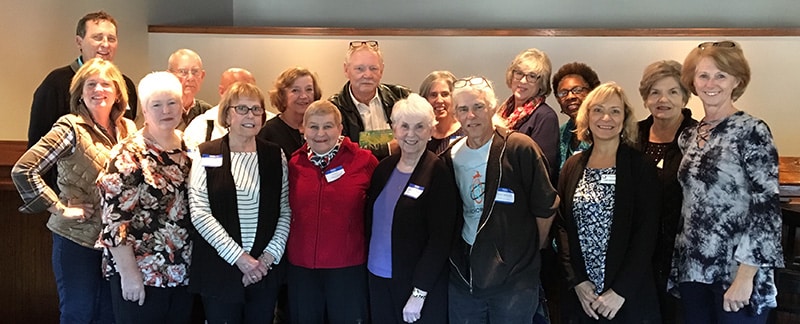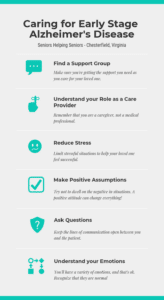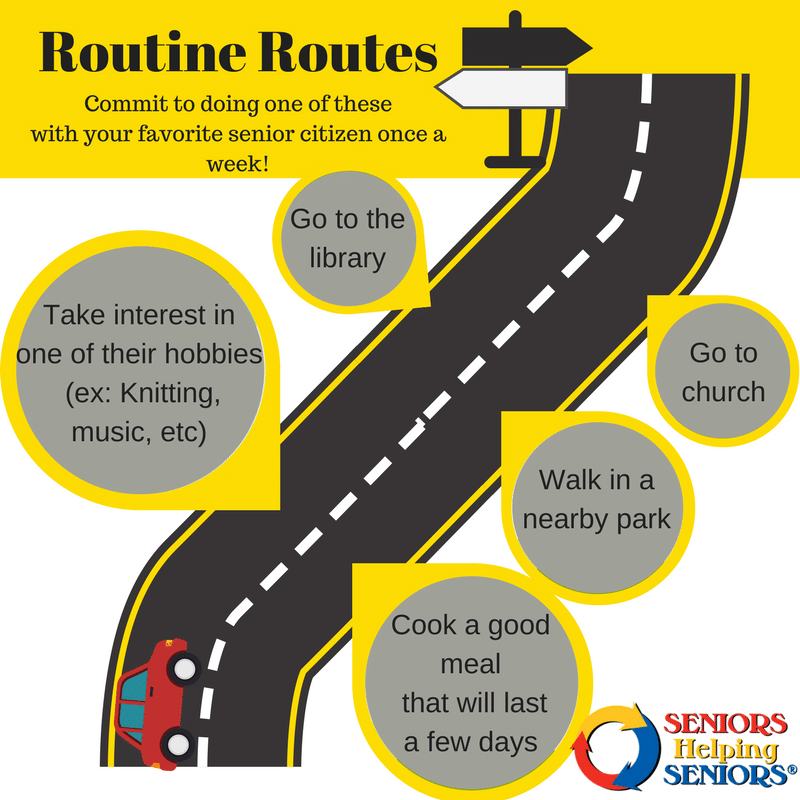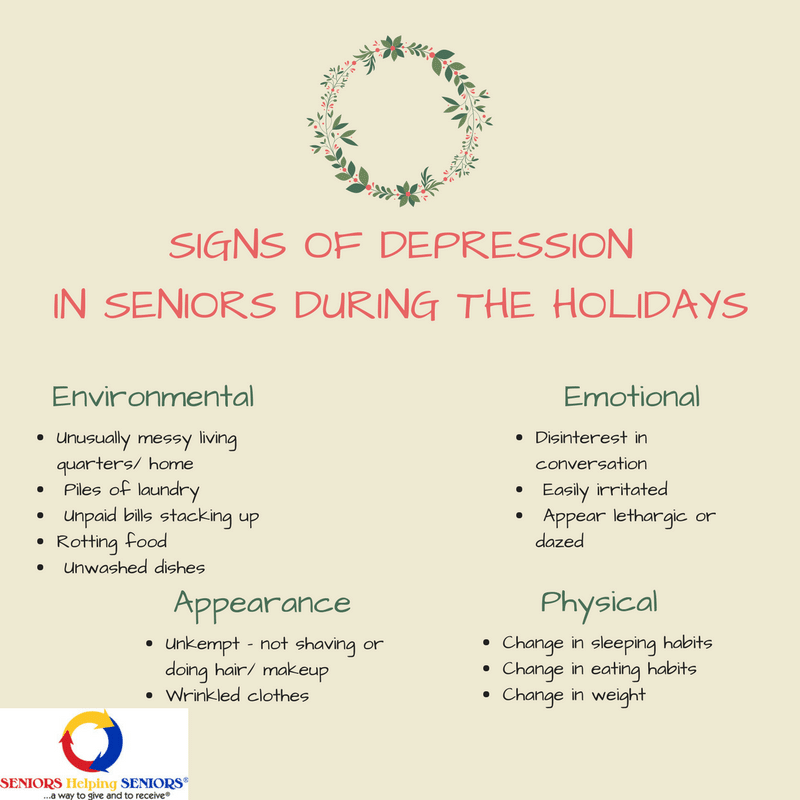 The world feels a bit slower when Winter rolls in. The sun sets earlier, the days feel shorter, and the quiet of the early morning can become a comforting space all on its own. For many seniors, this time of year offers a perfect opportunity to savor peaceful routines that help them feel grounded, energized, and connected.
The world feels a bit slower when Winter rolls in. The sun sets earlier, the days feel shorter, and the quiet of the early morning can become a comforting space all on its own. For many seniors, this time of year offers a perfect opportunity to savor peaceful routines that help them feel grounded, energized, and connected.
But remember: there is no “right” way to start the day.
Some people enjoy starting the day with a brisk walk. Others prefer a warm cup of coffee, time with a crossword, or simply watching the sunrise. There’s no single recipe for a good morning – just the one that feels right for you. And as we head into a new year, waking up earlier happens to be one of the most common resolutions. The key is not when you rise, but how you make that time meaningful.
Let’s explore why gentle, early-morning rituals can make winter days feel brighter, and how you (and your caregiver) can craft a routine that supports your well-being.
Why Is Getting Up Early Helpful?
Waking up earlier doesn’t have to be about being busy – it’s about creating time for yourself.
A little extra daylight: Winter light is precious. Rising earlier gives us more time to enjoy it, which can lift mood, support sleep patterns, and help us feel more connected to the day.
A quieter and smoother start: Many seniors find that beginning the day gently- rather than rushing – helps with focus, balance, and energy. With fewer demands coming your way, it’s easier to ease into the day slowly and comfortably.
Time for meaningful activities: Whether that’s movement, conversation, reading, prayer, or simply breathing in the cool morning air. Caregivers can play a supportive role here, too. A companion can help prepare a warm breakfast, set up the newspaper or tablet, assist with a morning walk, or simply share a pleasant conversation – turning morning time into something to look forward to.
How to Create Your Own Morning Ritual
A morning ritual isn’t built overnight (pun fully intended). It’s a gentle shift-creating a new routine with patience and kindness – especially toward yourself.
- Shift your wake-up time gradually
Move your alarm 10-15 minutes earlier every few days. If you work with a caregiver, they can help adjust your schedule safely and comfortably.
- Prepare the night before
A Seniors Helping Seniors® caregiver can help set out clothing, warm up a blanket in the dryer, arrange morning medications, or prep breakfast ingredients – making the morning feel welcoming.
- Respect your natural style
Not everyone is built for high-energy mornings. And that’s okay. Choose what makes you feel good.
- Start with one simple ritual
A favorite mug, a short stretch, a prayer, a poem, a quiet chat – one meaningful moment is plenty to anchor your morning.
Ideas for Different Morning Styles
For the Gentle, Slow-Go Mornings
If you like to wake up softly:
- Enjoy tea or coffee while watching the sunrise
- Read a devotional or the morning news
- Do light stretches or breathing exercises with caregiver support
- Sit by a sunny window to soak in natural light
A Seniors Helping Seniors® caregiver can join you for conversation, prepare breakfast, or help with mobility so your morning feels calm and safe.
For the Energetic or “Let’s Get Moving” Mornings
If you feel best when you start with activity:
- Take a short walk with a caregiver
- Do a simple, safe in-home exercise routine
- Organize or tidy a small space together
- Go over the day’s plans with support
Companions from Seniors Helping Seniors® can help keep these activities fun, safe, and tailored to your comfort level.
For Those Who Prefer a Mix
If you like a little calm and a little movement:
- Start with quiet time – coffee, journaling, or a warm blanket
- Add a gentle walk or stretch
- Finish with a shared breakfast or conversation
Our caregivers can help balance both sides – motivation when you want it, companionship when you need it.
Morning can set the tone for the entire day. Our caregivers – who are seniors themselves – understand how important it is to start with comfort, dignity, and connection.
We can help with:
- Light morning exercise or walks
- Preparing breakfast or tea
- Medication reminders
- Setting up personal activities, like reading or puzzles
- Warm, friendly companionship to start the day on a positive note
- Safe assistance with dressing or grooming
Because our caregivers are peers, mornings often feel more like spending time with a friend than receiving formal care.
Waking up early isn’t a requirement, and it may not be the perfect fit for everyone. What matters most is finding a morning rhythm that brings you joy, helps you feel steady, and supports your well-being throughout the winter months. Whether your day begins with movement, stillness, conversation, or a peaceful moment to yourself, a meaningful morning ritual can add a touch of magic to your season. If you’d like a little help making your mornings brighter, Seniors Helping Seniors® in-home care services is always here to support you – warmly, respectfully, and side by side.
The post The Magic of Morning Rituals: How a Gentle Start Shapes Your Winter Days appeared first on Seniors Helping Seniors.



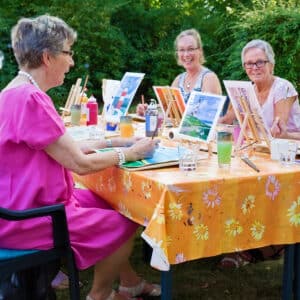



 Stay Steady, Engaged & Confident in the Winter Months
Stay Steady, Engaged & Confident in the Winter Months Each November, Alzheimer’s Disease Awareness Month invites us to learn, reflect, and show support for the individuals and families impacted by Alzheimer’s and other memory challenges. Alzheimer’s disease affects more than 6 million Americans, gradually impacting memory, communication, and daily routines. Our Seniors Helping Seniors® team believes that supporting memory means fostering connection, dignity, and joy in every season of life.
Each November, Alzheimer’s Disease Awareness Month invites us to learn, reflect, and show support for the individuals and families impacted by Alzheimer’s and other memory challenges. Alzheimer’s disease affects more than 6 million Americans, gradually impacting memory, communication, and daily routines. Our Seniors Helping Seniors® team believes that supporting memory means fostering connection, dignity, and joy in every season of life. Hydration Meets Comfort This Fall
Hydration Meets Comfort This Fall The arrival of fall also marks the start of flu season. Typically running from October through May, staying healthy takes a little extra care during this time – especially for older adults. Seniors face higher risks from the flu, not only because of age-related changes to the immune system but also because the flu can worsen existing health conditions like diabetes, COPD, or heart disease. Symptoms such as fever, body aches, and fatigue may hit harder and linger longer for older adults. That’s why proactive measures are key.
The arrival of fall also marks the start of flu season. Typically running from October through May, staying healthy takes a little extra care during this time – especially for older adults. Seniors face higher risks from the flu, not only because of age-related changes to the immune system but also because the flu can worsen existing health conditions like diabetes, COPD, or heart disease. Symptoms such as fever, body aches, and fatigue may hit harder and linger longer for older adults. That’s why proactive measures are key. As the seasons change, our daily routines often shift with them. For senior caregivers, autumn can bring new challenges, from managing busy schedules to keeping loved ones safe as the days grow shorter. Caring for an older loved one takes time, energy, and patience, but new technology is stepping in to lend a hand. Artificial intelligence (AI) tools are evolving to become practical resources caregivers can use to stay organized and keep loved ones safe.
As the seasons change, our daily routines often shift with them. For senior caregivers, autumn can bring new challenges, from managing busy schedules to keeping loved ones safe as the days grow shorter. Caring for an older loved one takes time, energy, and patience, but new technology is stepping in to lend a hand. Artificial intelligence (AI) tools are evolving to become practical resources caregivers can use to stay organized and keep loved ones safe. Autumn Adventures Are Just a Tap Away
Autumn Adventures Are Just a Tap Away Seniors, Embrace Wellness This August
Seniors, Embrace Wellness This August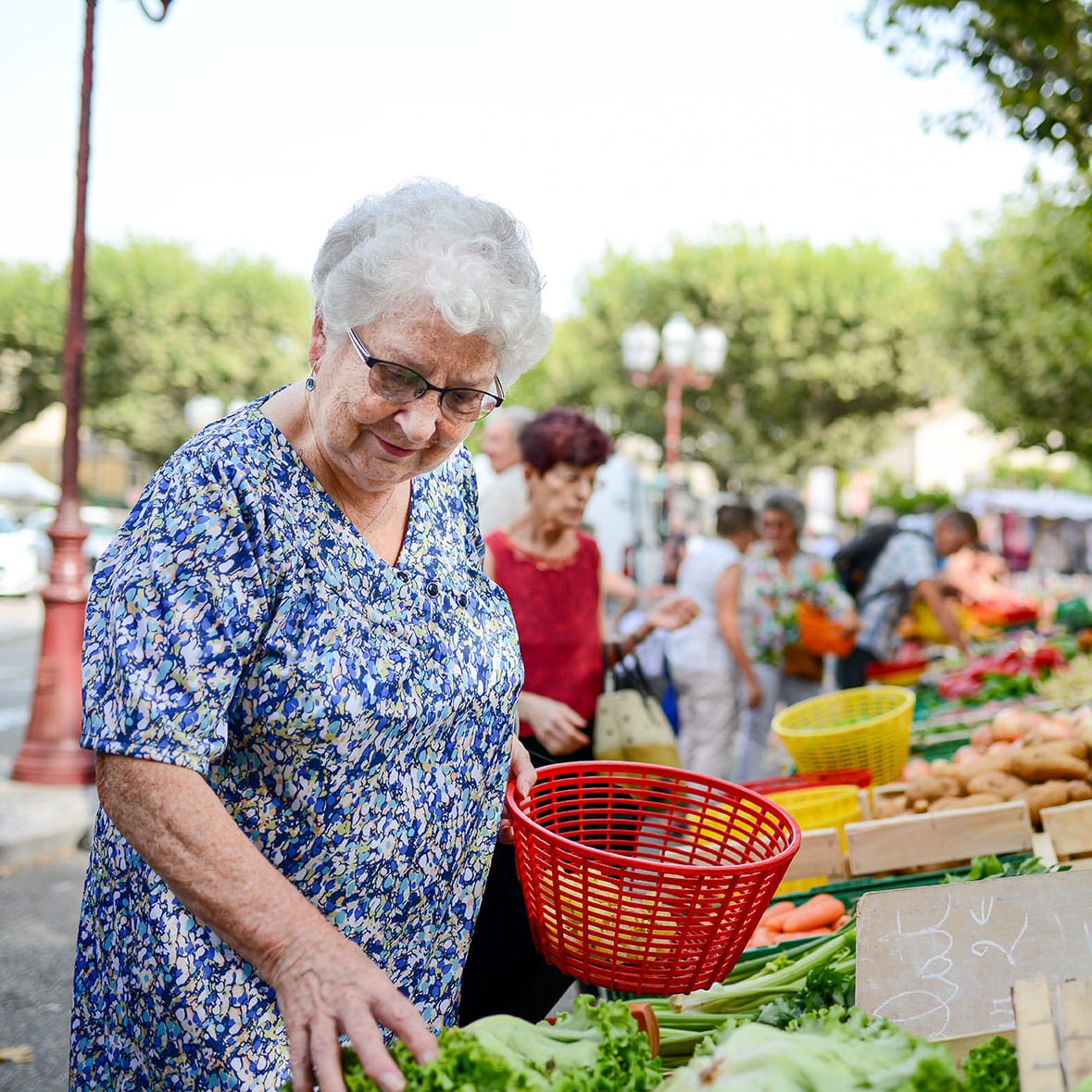 National Farmers Market Week (August 4-10) is the perfect invitation to embrace wellness. It’s the perfect time for seniors to reconnect with their community and enjoy an outing that’s as nourishing for the spirit as it is for the body. With a compassionate Seniors Helping Seniors® caregiver from providing a ride and companionship, a wonderful trip to the market is always possible. Keep reading to discover the wonderful benefits of a market visit and tips for making the most of your day.
National Farmers Market Week (August 4-10) is the perfect invitation to embrace wellness. It’s the perfect time for seniors to reconnect with their community and enjoy an outing that’s as nourishing for the spirit as it is for the body. With a compassionate Seniors Helping Seniors® caregiver from providing a ride and companionship, a wonderful trip to the market is always possible. Keep reading to discover the wonderful benefits of a market visit and tips for making the most of your day.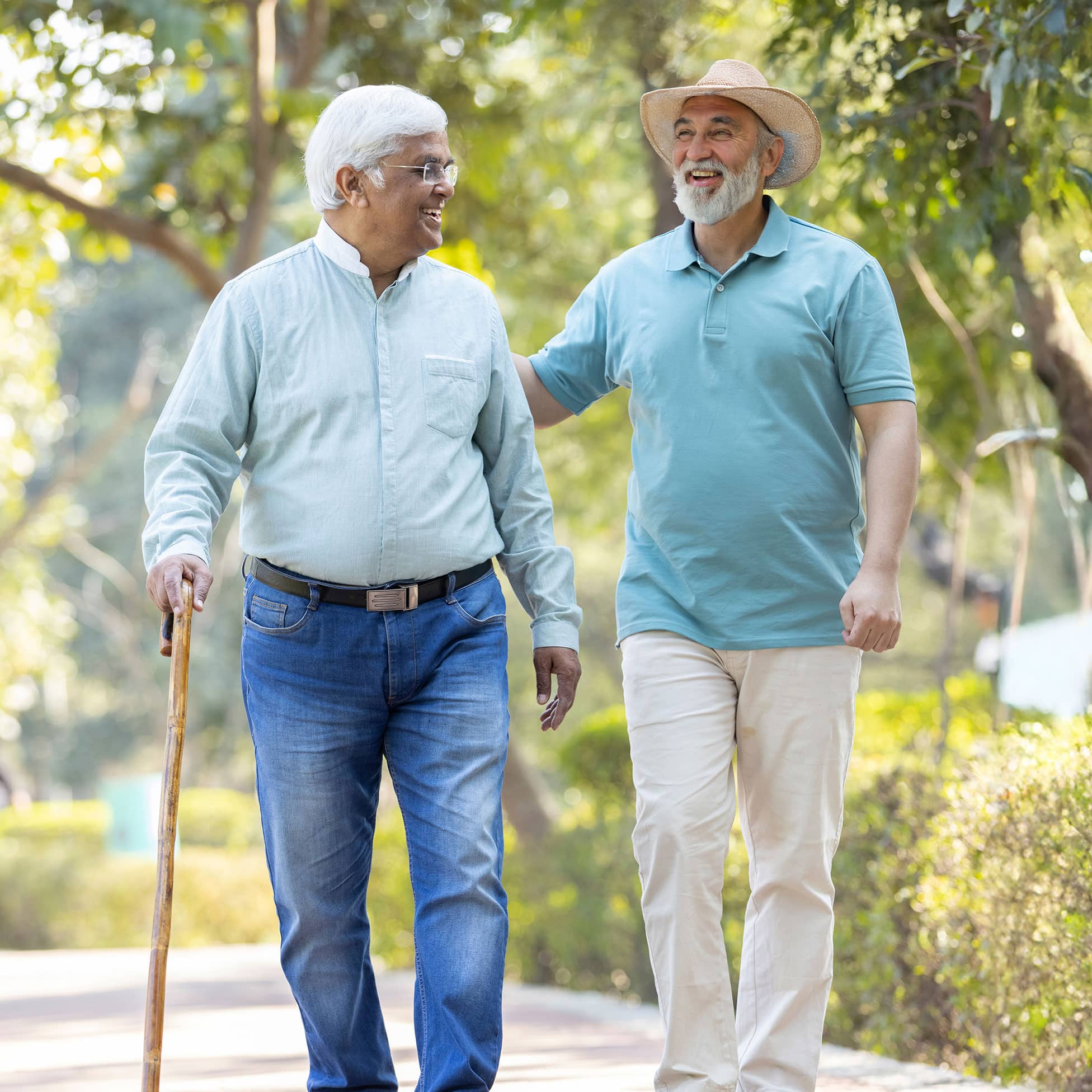 July is National Anti-Boredom Month. For our senior loved ones, especially those spending more time at home, boredom can sometimes creep in, turning quiet moments into feelings of loneliness or disinterest. It’s more than just “having nothing to do” – a lack of engagement can truly impact an older adult’s well-being. This special month highlights the importance of engagement and meaningful activity in boosting spirits and maintaining overall health. In this Seniors Helping Seniors® blog, we’ll discuss why combating boredom is crucial for senior well-being and offer inspiring ideas to help your loved one stay engaged, vibrant, and connected all year long.
July is National Anti-Boredom Month. For our senior loved ones, especially those spending more time at home, boredom can sometimes creep in, turning quiet moments into feelings of loneliness or disinterest. It’s more than just “having nothing to do” – a lack of engagement can truly impact an older adult’s well-being. This special month highlights the importance of engagement and meaningful activity in boosting spirits and maintaining overall health. In this Seniors Helping Seniors® blog, we’ll discuss why combating boredom is crucial for senior well-being and offer inspiring ideas to help your loved one stay engaged, vibrant, and connected all year long. The Fourth of July is here, seniors! We’re excited for patriotic parades, delicious backyard barbecues, and of course lively firework shows. While these spectacular displays are a highlight of the holiday, the celebratory sounds can present a challenge for mature adults with sensitive hearing. The Seniors Helping Seniors® team wants to ensure your loved ones can comfortably enjoy the festivities. That’s why we’ve put together simple tips to protect their ears and offer alternative ways to celebrate, ensuring everyone has a safe and happy Independence Day. Keep reading for our full guide to senior hearing protection this Fourth of July.
The Fourth of July is here, seniors! We’re excited for patriotic parades, delicious backyard barbecues, and of course lively firework shows. While these spectacular displays are a highlight of the holiday, the celebratory sounds can present a challenge for mature adults with sensitive hearing. The Seniors Helping Seniors® team wants to ensure your loved ones can comfortably enjoy the festivities. That’s why we’ve put together simple tips to protect their ears and offer alternative ways to celebrate, ensuring everyone has a safe and happy Independence Day. Keep reading for our full guide to senior hearing protection this Fourth of July. Namaste seniors! The Seniors Helping Seniors® team is excited to shine a light on International Yoga Day this June. Yoga is a gentle, low-impact form of physical and mental exercise that improves strength, flexibility, balance, and peace of mind at any age. Whether you’re looking to improve your balance, strengthen your core, or simply enjoy a few quiet moments of mindfulness, yoga is a fantastic option. It’s non-strenuous, adaptable to all mobility levels, and can even be done in a chair. From easing joint pain to reducing stress, yoga encourages movement that feels good and supports your overall well-being.
Namaste seniors! The Seniors Helping Seniors® team is excited to shine a light on International Yoga Day this June. Yoga is a gentle, low-impact form of physical and mental exercise that improves strength, flexibility, balance, and peace of mind at any age. Whether you’re looking to improve your balance, strengthen your core, or simply enjoy a few quiet moments of mindfulness, yoga is a fantastic option. It’s non-strenuous, adaptable to all mobility levels, and can even be done in a chair. From easing joint pain to reducing stress, yoga encourages movement that feels good and supports your overall well-being. Happy National Best Friends Day from all of us at the Seniors Helping Seniors® team! This special day is the perfect opportunity to celebrate the friendships that bring us joy, laughter, and love; especially the kind that grow between seniors and caregivers. At its core, our mission is about genuine connection. We’ve seen time and again how a supportive Seniors Helping Seniors® caregiver can become a trusted companion, creating a bond that uplifts both individuals and enriches daily life. For many seniors, having a friend they can count on makes all the difference in staying active, engaged, and emotionally well.
Happy National Best Friends Day from all of us at the Seniors Helping Seniors® team! This special day is the perfect opportunity to celebrate the friendships that bring us joy, laughter, and love; especially the kind that grow between seniors and caregivers. At its core, our mission is about genuine connection. We’ve seen time and again how a supportive Seniors Helping Seniors® caregiver can become a trusted companion, creating a bond that uplifts both individuals and enriches daily life. For many seniors, having a friend they can count on makes all the difference in staying active, engaged, and emotionally well.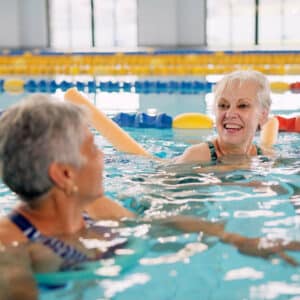 On the last Wednesday of May, thousands of older adults across the country participate in National Senior Health & Fitness Day. This day encourages seniors to make fitness a part of their lives, with fun, low-pressure activities designed to keep you moving. The Seniors Helping Seniors® team sees it as a joyful reminder that taking care of your body and mind is always a good idea and is always worth celebrating. From walking and swimming to gentle stretching, there are plenty of gentle ways to get in some movement that feels good and helps keep you strong, healthy, and independent. Keep reading for our top exercise ideas for seniors to try out on National Senior Health & Fitness Day.
On the last Wednesday of May, thousands of older adults across the country participate in National Senior Health & Fitness Day. This day encourages seniors to make fitness a part of their lives, with fun, low-pressure activities designed to keep you moving. The Seniors Helping Seniors® team sees it as a joyful reminder that taking care of your body and mind is always a good idea and is always worth celebrating. From walking and swimming to gentle stretching, there are plenty of gentle ways to get in some movement that feels good and helps keep you strong, healthy, and independent. Keep reading for our top exercise ideas for seniors to try out on National Senior Health & Fitness Day.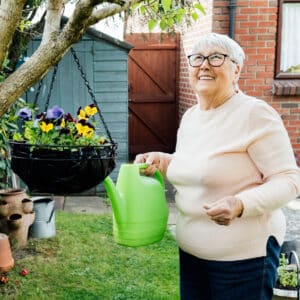 As springtime blossoms, digging into the joys of gardening is a great way to welcome the season. Many seniors can find comfort and peace in the process of planting a seed and watching it grow. For older adults, gardening is more than just a relaxing pastime. It’s a delightful way to stay active, enjoy the fresh air, and brighten each day with purpose. Whether you have a spacious backyard or just a sunny windowsill, this fun and accessible hobby can be easily adapted to your space and ability. In this Seniors Helping Seniors® blog, we’ll discuss how gardening supports healthy aging and share tips to help you, or your loved one, create a manageable garden that brings color and joy to everyday life.
As springtime blossoms, digging into the joys of gardening is a great way to welcome the season. Many seniors can find comfort and peace in the process of planting a seed and watching it grow. For older adults, gardening is more than just a relaxing pastime. It’s a delightful way to stay active, enjoy the fresh air, and brighten each day with purpose. Whether you have a spacious backyard or just a sunny windowsill, this fun and accessible hobby can be easily adapted to your space and ability. In this Seniors Helping Seniors® blog, we’ll discuss how gardening supports healthy aging and share tips to help you, or your loved one, create a manageable garden that brings color and joy to everyday life.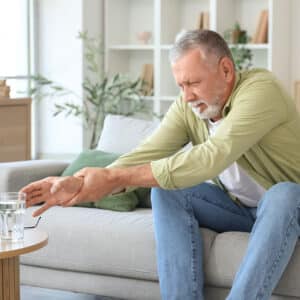 Aging comes with its fair share of challenges. Health concerns, changes in routines, and everyday worries add up, making stress common for many seniors. If you’re feeling overwhelmed, know that you’re not alone. April is Stress Awareness Month, a gentle reminder to put your well-being first. While a little stress is good for the body, too much can leave you feeling exhausted and anxious. Whether it’s a racing mind at bedtime, tension in your shoulders, or feeling overwhelmed by the “what ifs,” stress has a sneaky way of creeping in. The key is finding small, manageable ways to invite more calm into your daily life. From simple relaxation techniques to leaning on a trusted companion, there are plenty of ways to de-stress and feel your best.
Aging comes with its fair share of challenges. Health concerns, changes in routines, and everyday worries add up, making stress common for many seniors. If you’re feeling overwhelmed, know that you’re not alone. April is Stress Awareness Month, a gentle reminder to put your well-being first. While a little stress is good for the body, too much can leave you feeling exhausted and anxious. Whether it’s a racing mind at bedtime, tension in your shoulders, or feeling overwhelmed by the “what ifs,” stress has a sneaky way of creeping in. The key is finding small, manageable ways to invite more calm into your daily life. From simple relaxation techniques to leaning on a trusted companion, there are plenty of ways to de-stress and feel your best. April is Parkinson’s Awareness Month, a time to educate, support, and empower those living with Parkinson’s disease. Whether you or a loved one have been touched by this disease, know that you’re not alone. With Parkinson’s, you know that every day comes with unique challenges, but also opportunities to find joy, connection, and strength. The Seniors Helping Seniors® team is honored to provide compassionate, one-on-one support that brings stability, confidence, and connection to those living with this movement disorder. This month, we celebrate their strength and share practical ways to help navigate the journey with grace, dignity, and joy.
April is Parkinson’s Awareness Month, a time to educate, support, and empower those living with Parkinson’s disease. Whether you or a loved one have been touched by this disease, know that you’re not alone. With Parkinson’s, you know that every day comes with unique challenges, but also opportunities to find joy, connection, and strength. The Seniors Helping Seniors® team is honored to provide compassionate, one-on-one support that brings stability, confidence, and connection to those living with this movement disorder. This month, we celebrate their strength and share practical ways to help navigate the journey with grace, dignity, and joy. Recognized every March, American Red Cross Month draws attention to the organization’s humanitarian work and commitment to communities around the world in times of crisis. With over 65,000 crisis responses each year, the Red Cross reminds us all—especially seniors—of the importance of emergency preparedness. Seniors can take proactive measures to prepare for unexpected situations by having a well-stocked emergency kit at home. To help you get started, the Seniors Helping Seniors® team has created an easy-to-follow guide to help you in gathering the essentials for an effective emergency kit.
Recognized every March, American Red Cross Month draws attention to the organization’s humanitarian work and commitment to communities around the world in times of crisis. With over 65,000 crisis responses each year, the Red Cross reminds us all—especially seniors—of the importance of emergency preparedness. Seniors can take proactive measures to prepare for unexpected situations by having a well-stocked emergency kit at home. To help you get started, the Seniors Helping Seniors® team has created an easy-to-follow guide to help you in gathering the essentials for an effective emergency kit. Have you heard? Today is World Hearing Day. This annual awareness campaign, led by the World Health Organization, highlights the importance of protecting your hearing and recognizing early signs of hearing loss. It’s the perfect time to talk about ear health and why protecting your hearing matters for seniors. According to Johns Hopkins Medicine, about 1 in 3 adults between 65 and 74 experience some form of hearing loss. But because symptoms appear gradually, many seniors don’t realize the changes right away.
Have you heard? Today is World Hearing Day. This annual awareness campaign, led by the World Health Organization, highlights the importance of protecting your hearing and recognizing early signs of hearing loss. It’s the perfect time to talk about ear health and why protecting your hearing matters for seniors. According to Johns Hopkins Medicine, about 1 in 3 adults between 65 and 74 experience some form of hearing loss. But because symptoms appear gradually, many seniors don’t realize the changes right away.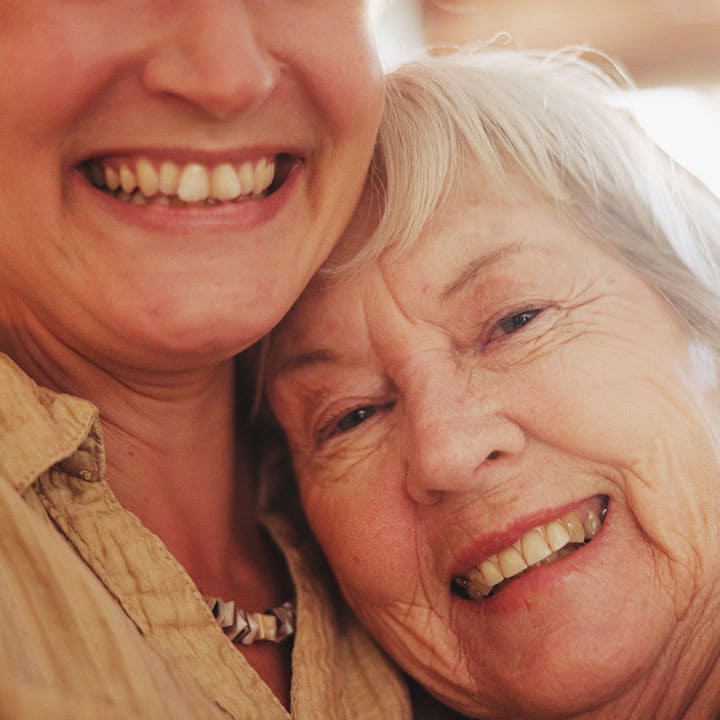 Today, we celebrate the heart and soul of the Seniors Helping Seniors® team: our incredible caregivers! National Caregivers Day is a moment to recognize these compassionate individuals who pour their hearts into supporting seniors and their loved ones. Whether preparing meals, lending a listening ear, or offering companionship, they’re more than caregivers—they’re trusted friends who empower seniors to thrive at home.
Today, we celebrate the heart and soul of the Seniors Helping Seniors® team: our incredible caregivers! National Caregivers Day is a moment to recognize these compassionate individuals who pour their hearts into supporting seniors and their loved ones. Whether preparing meals, lending a listening ear, or offering companionship, they’re more than caregivers—they’re trusted friends who empower seniors to thrive at home. Your heart is one of your body’s hardest-working muscles. It pumps oxygen-rich blood to all your vital organs, keeping them functioning properly. Recognized each February, American Heart Month reminds seniors just how important it is to keep their hearts in tip-top shape. Now is the perfect time to check in with your ticker and adopt simple, healthy habits that can lower your risk of heart disease and keep your heart strong. The Seniors Helping Seniors® team has put together a list of easy-to-follow tips that’ll help you stay heart-smart all year long. Continue reading for our advice to keep your heart in rhythm this month and beyond.
Your heart is one of your body’s hardest-working muscles. It pumps oxygen-rich blood to all your vital organs, keeping them functioning properly. Recognized each February, American Heart Month reminds seniors just how important it is to keep their hearts in tip-top shape. Now is the perfect time to check in with your ticker and adopt simple, healthy habits that can lower your risk of heart disease and keep your heart strong. The Seniors Helping Seniors® team has put together a list of easy-to-follow tips that’ll help you stay heart-smart all year long. Continue reading for our advice to keep your heart in rhythm this month and beyond. The internet is an incredible tool for staying connected, informed, and entertained, but it’s not without its risks—especially for seniors. Cybercriminals often target older adults with scams, phony emails, and other online threats. Staying safe online doesn’t require technical expertise—just a little awareness and a few simple precautions.
The internet is an incredible tool for staying connected, informed, and entertained, but it’s not without its risks—especially for seniors. Cybercriminals often target older adults with scams, phony emails, and other online threats. Staying safe online doesn’t require technical expertise—just a little awareness and a few simple precautions. Happy New Year! 2025 is here, and it’s the perfect time for seniors to prioritize health and wellness. Whether you’ve set big fitness goals or just want to feel your best, scheduling your annual health checkup is a fantastic first step for every senior. The Seniors Helping Seniors® team believes proactive care is the key to staying healthy and happy all year long.
Happy New Year! 2025 is here, and it’s the perfect time for seniors to prioritize health and wellness. Whether you’ve set big fitness goals or just want to feel your best, scheduling your annual health checkup is a fantastic first step for every senior. The Seniors Helping Seniors® team believes proactive care is the key to staying healthy and happy all year long. Winter’s cozy charm comes with shorter days and cooler weather—and for some seniors, it can bring Seasonal Affective Disorder (SAD). This winter-linked depression can dampen one’s mood, making it hard to enjoy the season’s comforts. The Seniors Helping Seniors® team is committed to helping your loved ones thrive no matter the season. Learn what SAD is, how it affects seniors, and our top tips for boosting spirits during winter’s chill.
Winter’s cozy charm comes with shorter days and cooler weather—and for some seniors, it can bring Seasonal Affective Disorder (SAD). This winter-linked depression can dampen one’s mood, making it hard to enjoy the season’s comforts. The Seniors Helping Seniors® team is committed to helping your loved ones thrive no matter the season. Learn what SAD is, how it affects seniors, and our top tips for boosting spirits during winter’s chill. The holidays have arrived, bringing winter weather, sparkling lights, and the quest for that perfect gift. Stumped on what to get the senior in your life? We’ve got you covered. The Seniors Helping Seniors® team has curated a list of thoughtful gift ideas for seniors. Whether they love exploring new hobbies, staying cozy, or just enjoying the festive season, you’ll find inspiration here. Keep reading to unwrap the best holiday gifts for seniors and make their season truly special!
The holidays have arrived, bringing winter weather, sparkling lights, and the quest for that perfect gift. Stumped on what to get the senior in your life? We’ve got you covered. The Seniors Helping Seniors® team has curated a list of thoughtful gift ideas for seniors. Whether they love exploring new hobbies, staying cozy, or just enjoying the festive season, you’ll find inspiration here. Keep reading to unwrap the best holiday gifts for seniors and make their season truly special!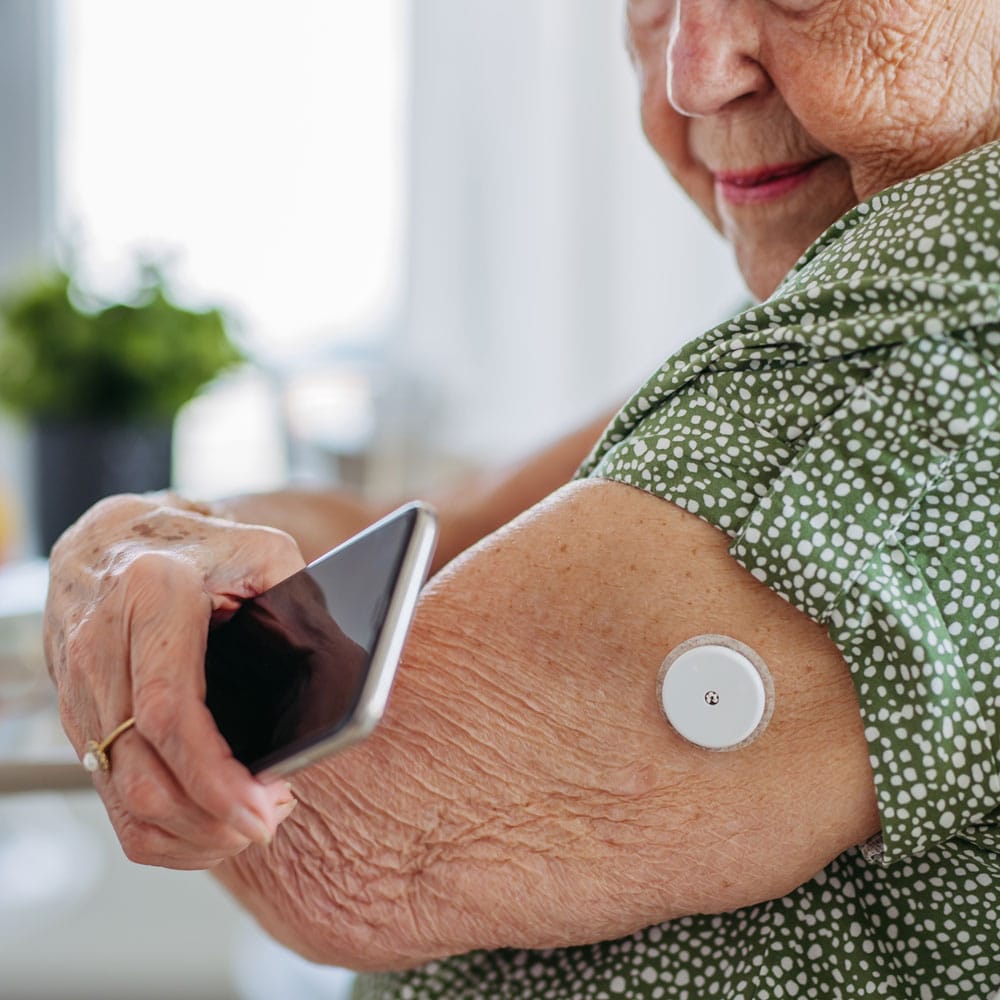 The holidays bring cherished time with loved ones, joyful gatherings, and, of course, plenty of delicious food. But for seniors managing diabetes, holiday treats and big meals can be a challenge. With holiday spreads often packed with carbs, sugars, and rich dishes, it can be tempting to let healthy routines slide. But you don’t have to opt out of the festivities completely.
The holidays bring cherished time with loved ones, joyful gatherings, and, of course, plenty of delicious food. But for seniors managing diabetes, holiday treats and big meals can be a challenge. With holiday spreads often packed with carbs, sugars, and rich dishes, it can be tempting to let healthy routines slide. But you don’t have to opt out of the festivities completely.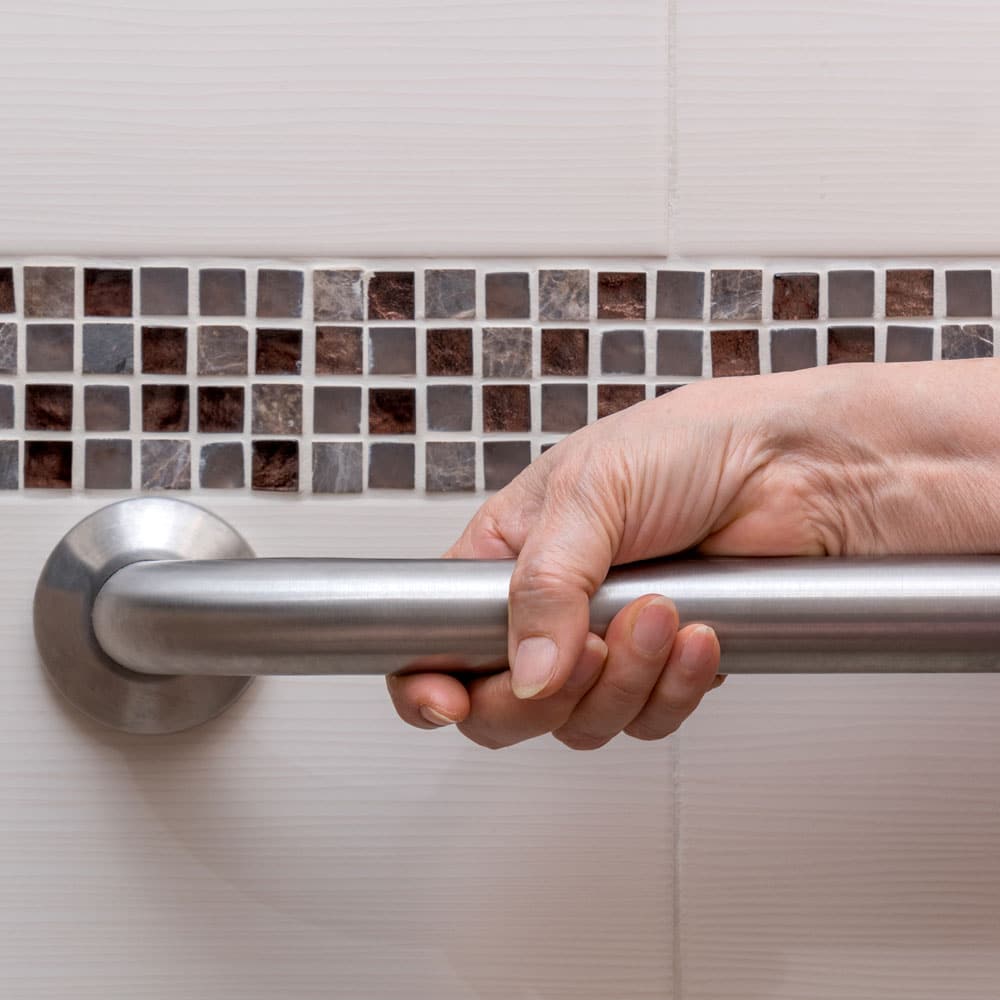 Tis the season for joy, togetherness, and… fall hazards for seniors. As the holidays approach, so do unique risks for falls that can make this time of year a little less merry for older adults. Festive lights, slick surfaces, and that extra holiday clutter can turn even familiar spaces into potential fall zones.
Tis the season for joy, togetherness, and… fall hazards for seniors. As the holidays approach, so do unique risks for falls that can make this time of year a little less merry for older adults. Festive lights, slick surfaces, and that extra holiday clutter can turn even familiar spaces into potential fall zones. Halloween isn’t just for kids; it’s a fantastic opportunity for seniors to embrace the fun and festivities of the season. The spooky holiday offers a wonderful opportunity for seniors to connect with family and friends through enjoyable activities that brighten their spirits. Whether it’s crafting seasonal decorations, baking delicious treats, or enjoying classic Halloween movies, there are countless ways to create lasting memories. The Seniors Helping Seniors® team came up with a list of thrilling ideas to help you have a hauntingly good time this Halloween.
Halloween isn’t just for kids; it’s a fantastic opportunity for seniors to embrace the fun and festivities of the season. The spooky holiday offers a wonderful opportunity for seniors to connect with family and friends through enjoyable activities that brighten their spirits. Whether it’s crafting seasonal decorations, baking delicious treats, or enjoying classic Halloween movies, there are countless ways to create lasting memories. The Seniors Helping Seniors® team came up with a list of thrilling ideas to help you have a hauntingly good time this Halloween.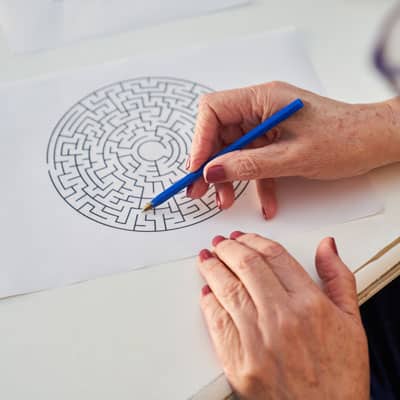 Fall is in the air, bringing with it pumpkin patch adventures, apple picking, baking sweet treats, and watching the leaves turn vibrant shades of red and gold. While this time of year offers plenty of seasonal excitement, it’s also important to focus on mental well-being—especially for seniors. The shorter days and cooler temperatures can disrupt daily routines, making it harder to stay active and get outside. The Seniors Helping Seniors® team understands these challenges and wants to help you stay happy and healthy this season. That’s why we’ve put together a list of simple tips to beat the seasonal blues. Keep reading for our advice on staying positive, active, and engaged this season.
Fall is in the air, bringing with it pumpkin patch adventures, apple picking, baking sweet treats, and watching the leaves turn vibrant shades of red and gold. While this time of year offers plenty of seasonal excitement, it’s also important to focus on mental well-being—especially for seniors. The shorter days and cooler temperatures can disrupt daily routines, making it harder to stay active and get outside. The Seniors Helping Seniors® team understands these challenges and wants to help you stay happy and healthy this season. That’s why we’ve put together a list of simple tips to beat the seasonal blues. Keep reading for our advice on staying positive, active, and engaged this season. As the summer days fade and September welcomes a new season, many seniors find themselves adjusting to changing routines and shorter days. This shift can sometimes bring on feelings of social isolation, which can impact mental, emotional, and physical well-being. The Seniors Helping Seniors® team understands how challenging it can be to stay connected with loved ones, especially if they’re far away.
As the summer days fade and September welcomes a new season, many seniors find themselves adjusting to changing routines and shorter days. This shift can sometimes bring on feelings of social isolation, which can impact mental, emotional, and physical well-being. The Seniors Helping Seniors® team understands how challenging it can be to stay connected with loved ones, especially if they’re far away.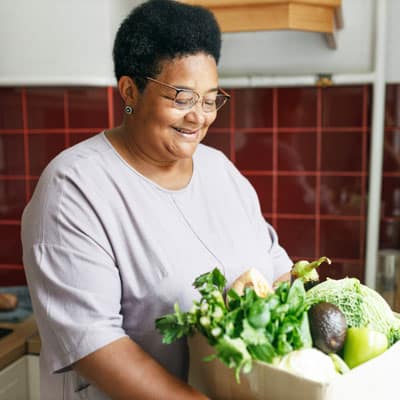 As fall arrives, we say farewell to the zesty, bright flavors of summer and embrace the warm, comforting tastes of autumn. Whether you’re a pumpkin spice enthusiast or a fan of fresh squash and zucchini from your local farmer’s market, there’s a fall recipe for every palate. This September, the Seniors Helping Seniors® team is here to help you enjoy the season with simple, healthy recipes that complement the cozy, cooler days. Read on to discover the benefits of a healthy fall diet for seniors and check out our top fall recipes!
As fall arrives, we say farewell to the zesty, bright flavors of summer and embrace the warm, comforting tastes of autumn. Whether you’re a pumpkin spice enthusiast or a fan of fresh squash and zucchini from your local farmer’s market, there’s a fall recipe for every palate. This September, the Seniors Helping Seniors® team is here to help you enjoy the season with simple, healthy recipes that complement the cozy, cooler days. Read on to discover the benefits of a healthy fall diet for seniors and check out our top fall recipes! August marks the end of carefree summer days and the beginning of the back-to-school rush. As children nationwide squeeze in their last fun moments in the sun, parents and guardians scramble to prepare everything for a successful academic year. It’s a busy time for families, from buying art supplies for elementary students to sorting out tech gear for high schoolers.
August marks the end of carefree summer days and the beginning of the back-to-school rush. As children nationwide squeeze in their last fun moments in the sun, parents and guardians scramble to prepare everything for a successful academic year. It’s a busy time for families, from buying art supplies for elementary students to sorting out tech gear for high schoolers. Birdwatching is more than just a delightful pastime—it’s a wonderful way to connect with nature, boost your mood, and enjoy some gentle outdoor activity. For seniors, creating a backyard haven specifically designed for birdwatching can offer endless hours of joy and relaxation.
Birdwatching is more than just a delightful pastime—it’s a wonderful way to connect with nature, boost your mood, and enjoy some gentle outdoor activity. For seniors, creating a backyard haven specifically designed for birdwatching can offer endless hours of joy and relaxation.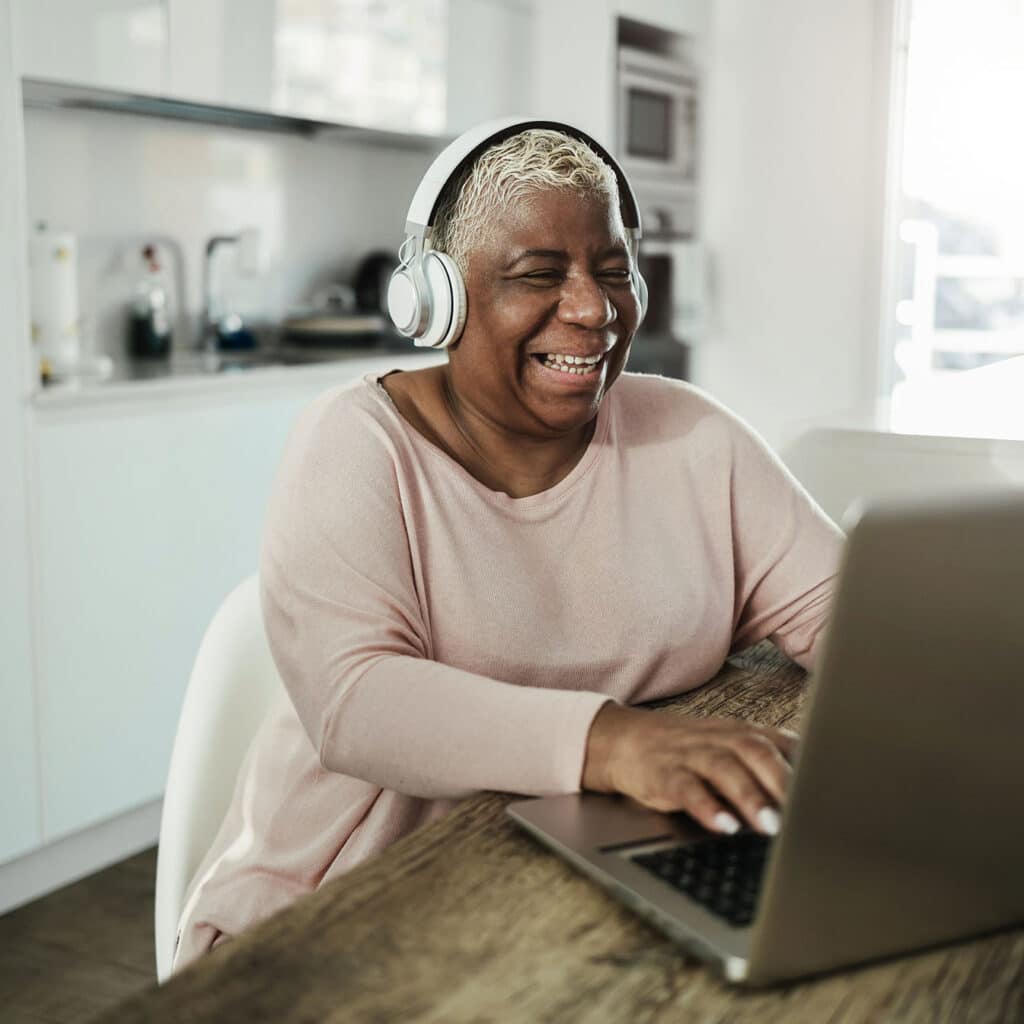 Welcome to the future of exploration, where travel is just a click away! Thanks to the power of virtual museum tours, discovering the world has never been more accessible or exciting! These virtual tours offer a fantastic opportunity to explore global treasures, stimulate your mind, and enjoy a vibrant cultural experience—all from the comfort of your home. Picture yourself strolling through the halls of the Louvre, admiring the Mona Lisa, or delving into ancient artifacts at the British Museum without leaving your favorite armchair.
Welcome to the future of exploration, where travel is just a click away! Thanks to the power of virtual museum tours, discovering the world has never been more accessible or exciting! These virtual tours offer a fantastic opportunity to explore global treasures, stimulate your mind, and enjoy a vibrant cultural experience—all from the comfort of your home. Picture yourself strolling through the halls of the Louvre, admiring the Mona Lisa, or delving into ancient artifacts at the British Museum without leaving your favorite armchair. This July, the Seniors Helping Seniors® family is happy to be feeling blue – that’s because it’s National Blueberry Month. These little blue gems are packed with flavor, nutrients, and antioxidants, making them a delicious super fruit with incredible health benefits for seniors. Reaching their peak ripeness in the summer heat, now is the perfect time to incorporate them into your diet. Whether you love them in baked goods, sprinkled over a summer salad, or as a solo snack, we’ve gathered our favorite blueberry recipes just for you.
This July, the Seniors Helping Seniors® family is happy to be feeling blue – that’s because it’s National Blueberry Month. These little blue gems are packed with flavor, nutrients, and antioxidants, making them a delicious super fruit with incredible health benefits for seniors. Reaching their peak ripeness in the summer heat, now is the perfect time to incorporate them into your diet. Whether you love them in baked goods, sprinkled over a summer salad, or as a solo snack, we’ve gathered our favorite blueberry recipes just for you.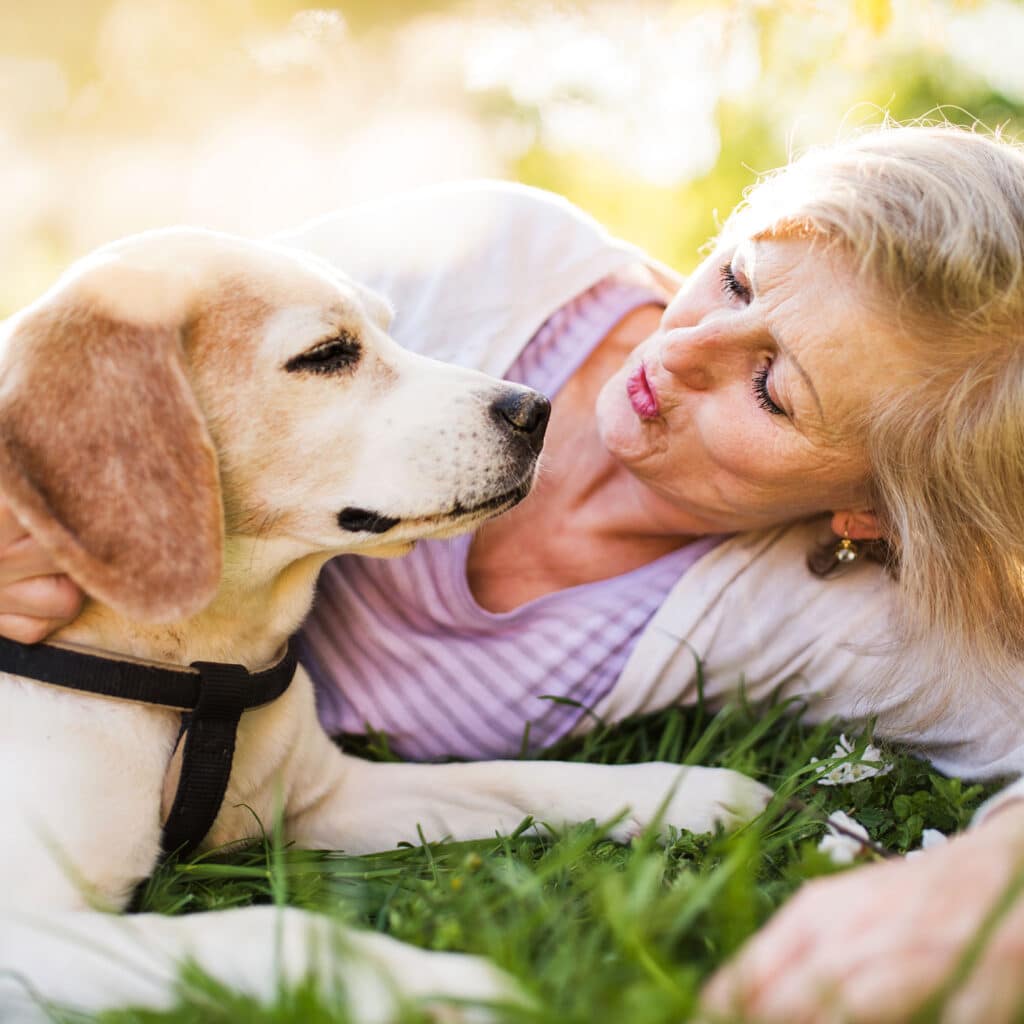 Ah, the dog days of summer! And no, we’re not just talking about the heat. Longer daylight hours and warm weather make it the ideal season for fun-filled adventures with your furry friends. On days that are too nice to stay indoors, why not have some fun in the sun with your dog (or daring cat)?
Ah, the dog days of summer! And no, we’re not just talking about the heat. Longer daylight hours and warm weather make it the ideal season for fun-filled adventures with your furry friends. On days that are too nice to stay indoors, why not have some fun in the sun with your dog (or daring cat)?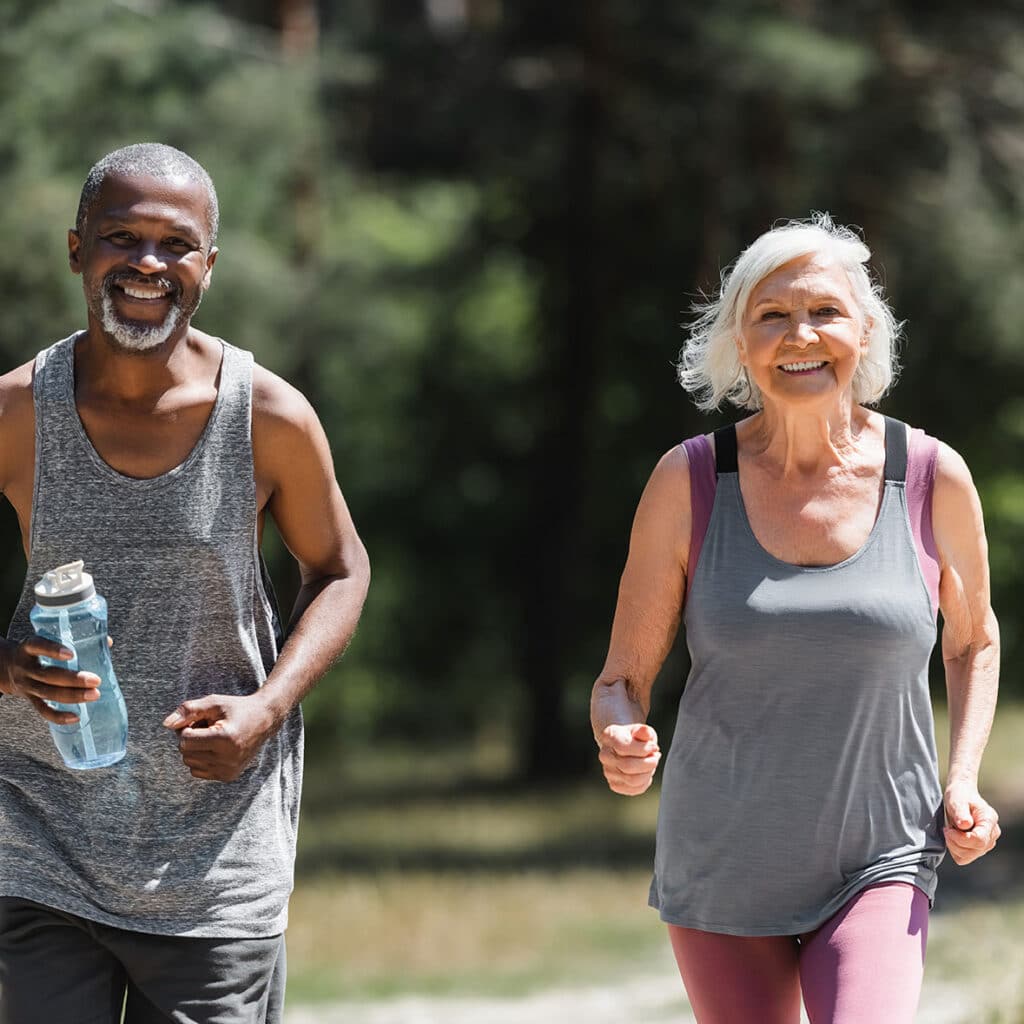 Did you drink any water today? Summer weather can be intense, with temperatures often soaring into the 90s and humidity making it feel even hotter. It’s easy to get dehydrated quickly, especially when you’re out enjoying the sunshine. If you want to increase your water intake, the Seniors Helping Seniors® team has your back with some delightful tips to help you stay hydrated all summer.
Did you drink any water today? Summer weather can be intense, with temperatures often soaring into the 90s and humidity making it feel even hotter. It’s easy to get dehydrated quickly, especially when you’re out enjoying the sunshine. If you want to increase your water intake, the Seniors Helping Seniors® team has your back with some delightful tips to help you stay hydrated all summer. Every year, on the last Monday of May, citizens celebrate Memorial Day to honor the brave US service members who sacrificed their lives for our country. It’s an impactful opportunity to remember and appreciate their selflessness and dedication.
Every year, on the last Monday of May, citizens celebrate Memorial Day to honor the brave US service members who sacrificed their lives for our country. It’s an impactful opportunity to remember and appreciate their selflessness and dedication. This May, join the Seniors Helping Seniors® team in recognizing Older Americans Month. To celebrate, we want to share expert advice and tips to help seniors age healthily and happily at home. This article suggests simple lifestyle adjustments that make home life better for seniors.
This May, join the Seniors Helping Seniors® team in recognizing Older Americans Month. To celebrate, we want to share expert advice and tips to help seniors age healthily and happily at home. This article suggests simple lifestyle adjustments that make home life better for seniors. April showers bring May flowers… and a dusting of pollen. While we welcome the arrival of warmer days and sunny skies, many Seniors Helping Seniors® clients face symptoms from springtime allergies. As we age, weakened immune systems or pre-existing health conditions can make older adults more vulnerable to allergies. With the allergy season peaking in April, symptoms like congestion, itchiness, and sneezing often come in full swing. If you’ve been struck by spring fever this year, the Seniors Helping Seniors® team wants to help. In this blog, we’ll review seven senior-focused tips for navigating the allergy season. Keep reading to discover our best advice for enjoying the beauty of spring while minimizing the annoying symptoms of allergies.
April showers bring May flowers… and a dusting of pollen. While we welcome the arrival of warmer days and sunny skies, many Seniors Helping Seniors® clients face symptoms from springtime allergies. As we age, weakened immune systems or pre-existing health conditions can make older adults more vulnerable to allergies. With the allergy season peaking in April, symptoms like congestion, itchiness, and sneezing often come in full swing. If you’ve been struck by spring fever this year, the Seniors Helping Seniors® team wants to help. In this blog, we’ll review seven senior-focused tips for navigating the allergy season. Keep reading to discover our best advice for enjoying the beauty of spring while minimizing the annoying symptoms of allergies. Celebrated each April, National Occupational Therapy Month recognizes the valuable contributions of this specialized form of healthcare. While Seniors Helping Seniors® in-home care services provide daily support for those we serve, occupational therapy is another method that helps seniors maintain their independence. In this Seniors Helping Seniors® blog, we’ll review the field of occupational therapy and explore the ways it can enhance the lives of seniors. Keep reading to learn more about National Occupational Therapy Month and the holistic advantages your Seniors Helping Seniors® caregiver can help provide and practice.
Celebrated each April, National Occupational Therapy Month recognizes the valuable contributions of this specialized form of healthcare. While Seniors Helping Seniors® in-home care services provide daily support for those we serve, occupational therapy is another method that helps seniors maintain their independence. In this Seniors Helping Seniors® blog, we’ll review the field of occupational therapy and explore the ways it can enhance the lives of seniors. Keep reading to learn more about National Occupational Therapy Month and the holistic advantages your Seniors Helping Seniors® caregiver can help provide and practice. Seniors, it’s time to make every dollar count and thrive financially with our Seniors Helping Seniors® exclusive budgeting tips. In today’s rapidly evolving economic landscape, seniors in the southern region must manage their finances wisely, to ensure a comfortable and stable future. In this blog, we will explore various practical strategies and resources. From taking advantage of senior discounts offered at grocery stores to utilizing budgeting apps and automating savings, we’ll cover all the essentials. Whether you’re looking to extend your retirement savings, protect your investments, or explore sustainable energy solutions such as solar panels, our guide is here to help. Join us as we embark on a journey to empower seniors with the knowledge and tools necessary to achieve financial well-being and peace of mind. Keep reading and let’s dive in!
Seniors, it’s time to make every dollar count and thrive financially with our Seniors Helping Seniors® exclusive budgeting tips. In today’s rapidly evolving economic landscape, seniors in the southern region must manage their finances wisely, to ensure a comfortable and stable future. In this blog, we will explore various practical strategies and resources. From taking advantage of senior discounts offered at grocery stores to utilizing budgeting apps and automating savings, we’ll cover all the essentials. Whether you’re looking to extend your retirement savings, protect your investments, or explore sustainable energy solutions such as solar panels, our guide is here to help. Join us as we embark on a journey to empower seniors with the knowledge and tools necessary to achieve financial well-being and peace of mind. Keep reading and let’s dive in! How did you sleep last night? The Seniors Helping Seniors® family is celebrating National Sleep Awareness Week from March 10th to March 16th. It’s an excellent opportunity to reflect on your habits and consider any adjustments you can make to enhance the quality of your sleep.
How did you sleep last night? The Seniors Helping Seniors® family is celebrating National Sleep Awareness Week from March 10th to March 16th. It’s an excellent opportunity to reflect on your habits and consider any adjustments you can make to enhance the quality of your sleep. Even though Valentine’s Day has passed, there are no rules on when you can show gratitude toward those who matter most. Throughout the year, Seniors Helping Seniors® in-home care services demonstrate that Love is in our Care®. We do this with heartfelt acts of service and compassion. Our caregivers work tirelessly to provide exceptional assistance to seniors nationwide, and we cannot thank them enough for their hard work!
Even though Valentine’s Day has passed, there are no rules on when you can show gratitude toward those who matter most. Throughout the year, Seniors Helping Seniors® in-home care services demonstrate that Love is in our Care®. We do this with heartfelt acts of service and compassion. Our caregivers work tirelessly to provide exceptional assistance to seniors nationwide, and we cannot thank them enough for their hard work! While physical fitness is crucial for seniors’ health, nurturing one’s mind is equally as important. Brain exercises enhance cognitive abilities, memory, and focus, similar to how diverse workouts target specific muscle groups. At Seniors Helping Seniors® in-home care services, we understand the unique needs of our clients in the Northeast. That’s why we’ve gathered eight enjoyable memory games designed to improve mental skills and keep the mind agile. Read on to discover these delightful, brain-boosting activities and let’s play!
While physical fitness is crucial for seniors’ health, nurturing one’s mind is equally as important. Brain exercises enhance cognitive abilities, memory, and focus, similar to how diverse workouts target specific muscle groups. At Seniors Helping Seniors® in-home care services, we understand the unique needs of our clients in the Northeast. That’s why we’ve gathered eight enjoyable memory games designed to improve mental skills and keep the mind agile. Read on to discover these delightful, brain-boosting activities and let’s play! Every passing year leaves behind its own set of special memories. The Seniors Helping Seniors® family loves helping those we serve to reflect on the past and document its most meaningful parts. The result is a tangible keepsake showcasing our clients’ treasured moments and personal growth.
Every passing year leaves behind its own set of special memories. The Seniors Helping Seniors® family loves helping those we serve to reflect on the past and document its most meaningful parts. The result is a tangible keepsake showcasing our clients’ treasured moments and personal growth. The holiday season calls for joy, celebration, and connection! Technology can help increase accessibility during this festive period; however, many seniors feel overwhelmed navigating the digital space. To help our clients stay active and engaged during the holiday season, the Seniors Helping Seniors® team has put together a handy guide with easy-to-follow tech tips designed to elevate every experience during this special time of year.
The holiday season calls for joy, celebration, and connection! Technology can help increase accessibility during this festive period; however, many seniors feel overwhelmed navigating the digital space. To help our clients stay active and engaged during the holiday season, the Seniors Helping Seniors® team has put together a handy guide with easy-to-follow tech tips designed to elevate every experience during this special time of year. Autumn represents change and reflection, making it the perfect backdrop for seniors to embrace the therapeutic benefits of music. During this transformative season, sentimental and nostalgic feelings often arise. Creating an uplifting fall song playlist can be a cathartic way to express emotions. In this blog post, we explore music’s profound impact on seniors’ emotional, physical, and social well-being. Continue reading for a few Seniors Helping Seniors® recommendations on curating an inspiring autumn soundtrack.
Autumn represents change and reflection, making it the perfect backdrop for seniors to embrace the therapeutic benefits of music. During this transformative season, sentimental and nostalgic feelings often arise. Creating an uplifting fall song playlist can be a cathartic way to express emotions. In this blog post, we explore music’s profound impact on seniors’ emotional, physical, and social well-being. Continue reading for a few Seniors Helping Seniors® recommendations on curating an inspiring autumn soundtrack. The Seniors Helping Seniors® family takes pride in facilitating meaningful, lasting connections between caregivers, clients, and families. We base our mission around the importance of forming a positive relationship between those giving and receiving in-home senior care.
The Seniors Helping Seniors® family takes pride in facilitating meaningful, lasting connections between caregivers, clients, and families. We base our mission around the importance of forming a positive relationship between those giving and receiving in-home senior care. Crafting beautiful and festive pumpkins doesn’t have to involve sharp tools and a big mess to clean up. For seniors in the Heartland looking for an orderly and safer way to decorate their fall gourds, the Seniors Helping Seniors® family has gathered a range of creative options that promise all the charm of pumpkin decoration without the fuss.
Crafting beautiful and festive pumpkins doesn’t have to involve sharp tools and a big mess to clean up. For seniors in the Heartland looking for an orderly and safer way to decorate their fall gourds, the Seniors Helping Seniors® family has gathered a range of creative options that promise all the charm of pumpkin decoration without the fuss. Growing older can be an amazing experience, and having your aging parents involved in your life and your children’s can be an enriching and wonderful thing for all concerned. However, as our parents move through their golden years, some additional challenges may emerge around
Growing older can be an amazing experience, and having your aging parents involved in your life and your children’s can be an enriching and wonderful thing for all concerned. However, as our parents move through their golden years, some additional challenges may emerge around 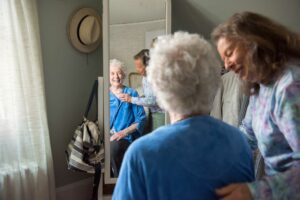 Healthy Aging Month, celebrated every September, brings awareness to the physical and mental changes seniors experience as they age. This month-long observance also reminds seniors to care for physical and mental health throughout the golden years. Seniors Helping Seniors® in-home care services enable older adults to lead a vibrant and fulfilling life. A kind hand and a positive perspective will help you or your senior loved one remain connected, curious, and content as you navigate the later years.
Healthy Aging Month, celebrated every September, brings awareness to the physical and mental changes seniors experience as they age. This month-long observance also reminds seniors to care for physical and mental health throughout the golden years. Seniors Helping Seniors® in-home care services enable older adults to lead a vibrant and fulfilling life. A kind hand and a positive perspective will help you or your senior loved one remain connected, curious, and content as you navigate the later years. Healthy Aging Month, celebrated every
Healthy Aging Month, celebrated every  Everyone views aging differently. To some, the idea of getting older is scary. Others embrace it with a youthful ferocity! At the end of the day, your mindset is more important than you think. It plays a large part in the quality of life experienced throughout your Golden Years.
Seniors Helping Seniors® in-home care services is committed to inspiring others to age gracefully and independently. One of the ways we encourage our care recipients to make the most of their senior years is by promoting “positive aging” techniques.
What Is Positive Aging?
Positive aging is all about mindset. It refers to the idea that if you maintain an optimistic outlook in your senior years — coupled with healthy habits, social engagement, and mental stimulation — you’ll feel good about yourself, remain physically active, and continue to engage fully in all aspects of life!
Incorporating positive aging techniques into your daily routine might sound difficult, but it’s easier than you think. Of course, our Seniors Helping Seniors® caregivers will stand by your side, ready to help you create and practice a program that will do your mind and body good!
Now that you know why positive aging is important, let’s discuss five simple ways Seniors Helping Seniors® care receivers can work the power of positivity into everyday life!
1 – Embrace Your Age!
Age is just a number, after all. Maintaining a youthful outlook and adapting to your changing abilities can help you accept that growing older is a normal part of life – one that every person (including your Seniors Helping Seniors® caregiver) is attempting to navigate.
The first step in discovering the power of positive aging is to accept the aging process by working with it and not against it. This makes it easier to cope with the challenges this stage of life presents, and instead, start looking forward to the possibilities!
2 – Make Fitness A Priority
Just thirty minutes of daily exercise can revolutionize your health. It can help you look and feel younger, complete tasks more easily, and prevent accidents and falls – all of which are essential for maintaining a positive outlook. Try the following Seniors Helping Seniors® suggestions to jumpstart your fitness routine:
Go for a walk
Walking is an excellent way to get the blood pumping while improving heart health, boosting mental clarity, and lowering blood pressure. Commit to a daily walk with a friend, family member, or your Seniors Helping Seniors® companion!
Explore senior fitness classes
There are plenty of exercise options for active seniors! Look into what classes your local senior center, gym, or fitness studio offers. Activities like water aerobics, chair yoga, and body weight workouts are popular among seniors and provide low impact workouts that will still make you feel the burn!
Don’t get discouraged if it’s tough to keep up at first. Your workouts will become easier as you build strength. Be consistent and you’ll soon look forward to your daily exercise regimen!
3 – Stay Connected
Building and maintaining close relationships is also essential to a positive aging plan. Doing so can combat loneliness, improve self-esteem, and foster a sense of belonging. Not sure where to begin? Try one of the following to make new friends or reconnect with some old pals:
Everyone views aging differently. To some, the idea of getting older is scary. Others embrace it with a youthful ferocity! At the end of the day, your mindset is more important than you think. It plays a large part in the quality of life experienced throughout your Golden Years.
Seniors Helping Seniors® in-home care services is committed to inspiring others to age gracefully and independently. One of the ways we encourage our care recipients to make the most of their senior years is by promoting “positive aging” techniques.
What Is Positive Aging?
Positive aging is all about mindset. It refers to the idea that if you maintain an optimistic outlook in your senior years — coupled with healthy habits, social engagement, and mental stimulation — you’ll feel good about yourself, remain physically active, and continue to engage fully in all aspects of life!
Incorporating positive aging techniques into your daily routine might sound difficult, but it’s easier than you think. Of course, our Seniors Helping Seniors® caregivers will stand by your side, ready to help you create and practice a program that will do your mind and body good!
Now that you know why positive aging is important, let’s discuss five simple ways Seniors Helping Seniors® care receivers can work the power of positivity into everyday life!
1 – Embrace Your Age!
Age is just a number, after all. Maintaining a youthful outlook and adapting to your changing abilities can help you accept that growing older is a normal part of life – one that every person (including your Seniors Helping Seniors® caregiver) is attempting to navigate.
The first step in discovering the power of positive aging is to accept the aging process by working with it and not against it. This makes it easier to cope with the challenges this stage of life presents, and instead, start looking forward to the possibilities!
2 – Make Fitness A Priority
Just thirty minutes of daily exercise can revolutionize your health. It can help you look and feel younger, complete tasks more easily, and prevent accidents and falls – all of which are essential for maintaining a positive outlook. Try the following Seniors Helping Seniors® suggestions to jumpstart your fitness routine:
Go for a walk
Walking is an excellent way to get the blood pumping while improving heart health, boosting mental clarity, and lowering blood pressure. Commit to a daily walk with a friend, family member, or your Seniors Helping Seniors® companion!
Explore senior fitness classes
There are plenty of exercise options for active seniors! Look into what classes your local senior center, gym, or fitness studio offers. Activities like water aerobics, chair yoga, and body weight workouts are popular among seniors and provide low impact workouts that will still make you feel the burn!
Don’t get discouraged if it’s tough to keep up at first. Your workouts will become easier as you build strength. Be consistent and you’ll soon look forward to your daily exercise regimen!
3 – Stay Connected
Building and maintaining close relationships is also essential to a positive aging plan. Doing so can combat loneliness, improve self-esteem, and foster a sense of belonging. Not sure where to begin? Try one of the following to make new friends or reconnect with some old pals:
 Summer is on its way out, but there’s still time to pack in as much fun as possible. Seeking out activities that bring you joy is important for seniors’ well-being. But with so many possibilities, narrowing down your top priorities can take time and effort. That’s why Seniors Helping Seniors® in-home care services has created the perfect summer bucket list to inspire seniors to get out there and enjoy the season!
Summer is on its way out, but there’s still time to pack in as much fun as possible. Seeking out activities that bring you joy is important for seniors’ well-being. But with so many possibilities, narrowing down your top priorities can take time and effort. That’s why Seniors Helping Seniors® in-home care services has created the perfect summer bucket list to inspire seniors to get out there and enjoy the season! A simple, friendly gesture has many lasting impacts. We all have the power to brighten the day of those around us through compassionate actions. Celebrated at the
A simple, friendly gesture has many lasting impacts. We all have the power to brighten the day of those around us through compassionate actions. Celebrated at the 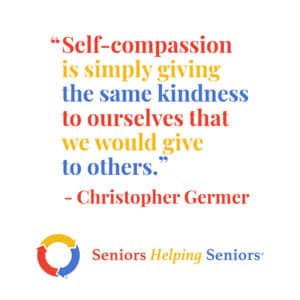 The concept of self-care has become increasingly popular over the past few years, and for good reason. Committing to a self-care routine boosts mental and physical health, reduces stress, increases productivity, improves relationships, and benefits overall wellbeing. Since
The concept of self-care has become increasingly popular over the past few years, and for good reason. Committing to a self-care routine boosts mental and physical health, reduces stress, increases productivity, improves relationships, and benefits overall wellbeing. Since  National Chronic Disease Day,
National Chronic Disease Day, 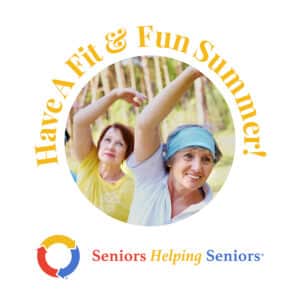 At Seniors Helping Seniors® in-home care services, we’re passionate about keeping seniors fit, strong, and active! We all know that sticking to a consistent fitness routine benefits both the body and mind, and the start of the summer season provides good motivation to get moving. But practicing the same senior exercises exercises every day can be a drag. Luckily, there are tons of ways to get the blood pumping! If you or a senior loved one are looking to mix up a daily fitness routine, give one of the activities below a try. Seniors Helping Seniors® caregivers love helping our clients step out of their comfort zone and are always excited to assist those we serve in knocking out all their fitness goals!
At Seniors Helping Seniors® in-home care services, we’re passionate about keeping seniors fit, strong, and active! We all know that sticking to a consistent fitness routine benefits both the body and mind, and the start of the summer season provides good motivation to get moving. But practicing the same senior exercises exercises every day can be a drag. Luckily, there are tons of ways to get the blood pumping! If you or a senior loved one are looking to mix up a daily fitness routine, give one of the activities below a try. Seniors Helping Seniors® caregivers love helping our clients step out of their comfort zone and are always excited to assist those we serve in knocking out all their fitness goals! The Seniors Helping Seniors® family loves seeing our care receivers enjoy the best parts of each season. With summer fast approaching in the Northeast, it will soon be time to break out the shorts, light the citronella candle, and dust off the patio table for the season’s first outdoor feast!
The Seniors Helping Seniors® family loves seeing our care receivers enjoy the best parts of each season. With summer fast approaching in the Northeast, it will soon be time to break out the shorts, light the citronella candle, and dust off the patio table for the season’s first outdoor feast! It’s our goal at Seniors Helping Seniors® in-home care services to keep our clients feeling their best and living full, active lives.
It’s our goal at Seniors Helping Seniors® in-home care services to keep our clients feeling their best and living full, active lives. 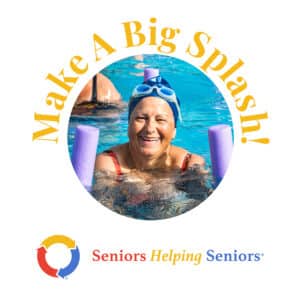 We at Seniors Helping Seniors® in-home care services love seeing our clients trying new things, especially when it comes to staying healthy! This month, we’re highlighting the
We at Seniors Helping Seniors® in-home care services love seeing our clients trying new things, especially when it comes to staying healthy! This month, we’re highlighting the 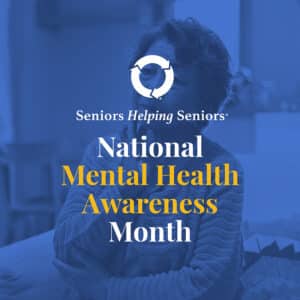 We often hear about ways to strengthen physical health, but taking steps to improve and nurture mental wellbeing is just as important.
We often hear about ways to strengthen physical health, but taking steps to improve and nurture mental wellbeing is just as important. 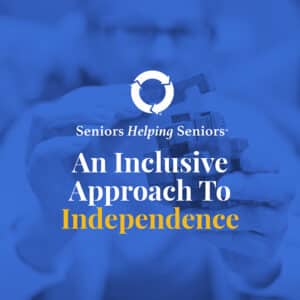 According to a
According to a  The spring season is a wonderful time to reestablish good habits, including a focus on healthy eating. Helping clients create nutritious meals and keep healthy snacks on-hand is one of the many ways Seniors Helping Seniors® caregivers support those we serve. While almonds and cashews frequently receive credit as a beneficial addition to senior diets, there’s another nut we’re nuts about – pecans! Since
The spring season is a wonderful time to reestablish good habits, including a focus on healthy eating. Helping clients create nutritious meals and keep healthy snacks on-hand is one of the many ways Seniors Helping Seniors® caregivers support those we serve. While almonds and cashews frequently receive credit as a beneficial addition to senior diets, there’s another nut we’re nuts about – pecans! Since 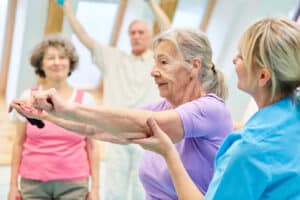 April is National Occupational Therapy Month and Seniors Helping Seniors® in-home care services is taking a moment to champion this life-changing treatment. Occupational therapy (OT) helps people of all ages maintain, or regain, the skills necessary to perform everyday activities.
April is National Occupational Therapy Month and Seniors Helping Seniors® in-home care services is taking a moment to champion this life-changing treatment. Occupational therapy (OT) helps people of all ages maintain, or regain, the skills necessary to perform everyday activities. The start of spring represents new beginnings and a season of rebirth. Just as the outside world takes this season to start fresh, seniors can use it to reset their homes with these spring cleaning tips.
The start of spring represents new beginnings and a season of rebirth. Just as the outside world takes this season to start fresh, seniors can use it to reset their homes with these spring cleaning tips. The month of March is noteworthy at Seniors Helping Seniors® in-home care services because it recognizes International Day of Awesomeness – and that means we get to celebrate all the reasons our clients are extraordinary! This fun
The month of March is noteworthy at Seniors Helping Seniors® in-home care services because it recognizes International Day of Awesomeness – and that means we get to celebrate all the reasons our clients are extraordinary! This fun  We all know a balanced diet and daily exercise are the
We all know a balanced diet and daily exercise are the  ational Random Acts of Kindness Day, and showing kindness is the concept at the heart of Seniors Helping Seniors® in-home care services. We see the effects of compassion year after year as we watch our caregivers and clients support one another, share genuine laughter, and spread hope with thoughtful acts.
ational Random Acts of Kindness Day, and showing kindness is the concept at the heart of Seniors Helping Seniors® in-home care services. We see the effects of compassion year after year as we watch our caregivers and clients support one another, share genuine laughter, and spread hope with thoughtful acts. Whether you enjoy them packed into a muffin or straight off the bush, blueberries are a sweet treat just about everybody loves. At Seniors Helping Seniors® in-home care services, we love this berry not only because it’s tasty, but also because it’s packed full of essential vitamins and nutrients! For example, just one cup of blueberries provides 24% of the daily recommended intake of vitamin C. One cup also clocks in at only 84 calories, so seconds (or thirds) won’t wreak havoc on your waistline. There are loads of ways seniors can incorporate this antioxidant-rich superfood into a healthy diet on a daily basis. If you need ideas, we outline a few below. But first, let’s explore some of the ways blueberries deliver a healthy punch!
Whether you enjoy them packed into a muffin or straight off the bush, blueberries are a sweet treat just about everybody loves. At Seniors Helping Seniors® in-home care services, we love this berry not only because it’s tasty, but also because it’s packed full of essential vitamins and nutrients! For example, just one cup of blueberries provides 24% of the daily recommended intake of vitamin C. One cup also clocks in at only 84 calories, so seconds (or thirds) won’t wreak havoc on your waistline. There are loads of ways seniors can incorporate this antioxidant-rich superfood into a healthy diet on a daily basis. If you need ideas, we outline a few below. But first, let’s explore some of the ways blueberries deliver a healthy punch! As we ring in a new year, it’s time to reboot and think about your intentions for 2023. That’s why
As we ring in a new year, it’s time to reboot and think about your intentions for 2023. That’s why  Playing games and solving puzzles might not feel like a serious brain workout, but these activities are some of the best ways to improve cognitive wellbeing. Even better – they’re a wonderful way to engage with family and friends! We just celebrated National Game and Puzzle Week the
Playing games and solving puzzles might not feel like a serious brain workout, but these activities are some of the best ways to improve cognitive wellbeing. Even better – they’re a wonderful way to engage with family and friends! We just celebrated National Game and Puzzle Week the  An estimated
An estimated  Fall is the perfect time to hop in the car and “get lost” for a bit. Whether you or a senior loved one are looking to take in vibrant and dazzling fall foliage, pop into a top-rated breakfast joint, or discover one-of-a-kind creations, there’s a perfect fall road trip for everyone!
Fall is the perfect time to hop in the car and “get lost” for a bit. Whether you or a senior loved one are looking to take in vibrant and dazzling fall foliage, pop into a top-rated breakfast joint, or discover one-of-a-kind creations, there’s a perfect fall road trip for everyone! With temperatures starting to cool and the hustle and bustle of summer at an end, autumn is a wonderful time to perform yearly maintenance
With temperatures starting to cool and the hustle and bustle of summer at an end, autumn is a wonderful time to perform yearly maintenance  Continually finding new hobbies that engage the mind is important in staying active and independent with age. Though traditional book clubs, exercise classes, and lunch dates are all excellent ways to promote social interaction and continued learning, Seniors Helping Seniors® in-home care services always encourages our care receivers to push the limits. This fall, step outside your comfort zone and try a fun and unexpected way to stimulate body and mind — senior video games!
Continually finding new hobbies that engage the mind is important in staying active and independent with age. Though traditional book clubs, exercise classes, and lunch dates are all excellent ways to promote social interaction and continued learning, Seniors Helping Seniors® in-home care services always encourages our care receivers to push the limits. This fall, step outside your comfort zone and try a fun and unexpected way to stimulate body and mind — senior video games! Cooler temperatures are settling in throughout the area, making it an ideal time for gardening. Green thumb or not, Seniors Helping Seniors® care receivers will benefit from autumn planting for many reasons. Let’s take a moment to uncover how gardening helps those we serve continue to stay active, social, and independent — in addition to creating the best-looking lawn on the block!
Cooler temperatures are settling in throughout the area, making it an ideal time for gardening. Green thumb or not, Seniors Helping Seniors® care receivers will benefit from autumn planting for many reasons. Let’s take a moment to uncover how gardening helps those we serve continue to stay active, social, and independent — in addition to creating the best-looking lawn on the block! National Golf Month and there is no better way to honor the game than by playing a round, but we want to keep golf safety in mind! A recent study shows that seniors actually make up one quarter of all golfers – and that’s because a day on the course offers some major benefits. For example, Seniors Helping Seniors® care receivers could find that regular golf outings:
National Golf Month and there is no better way to honor the game than by playing a round, but we want to keep golf safety in mind! A recent study shows that seniors actually make up one quarter of all golfers – and that’s because a day on the course offers some major benefits. For example, Seniors Helping Seniors® care receivers could find that regular golf outings: Summer is a great time for senior travel with family and friends for lots of reasons! You can generally count on nice weather, making delays and interruptions to your plans less likely. Your grandchildren may also be on summer break, giving you plenty of quality time with them. Most destinations like
Summer is a great time for senior travel with family and friends for lots of reasons! You can generally count on nice weather, making delays and interruptions to your plans less likely. Your grandchildren may also be on summer break, giving you plenty of quality time with them. Most destinations like 
 At Seniors Helping Seniors® in-home care services, we know that fostering new friendships can be difficult as a senior. We also know the
At Seniors Helping Seniors® in-home care services, we know that fostering new friendships can be difficult as a senior. We also know the  Summer means longer days, more sunshine, and plenty of time to get out and about with your Seniors Helping Seniors® caregiver! For those experiencing summer fatigue, however, keeping up with an active social life and tasks around the house can be tough. If you’re feeling this way,
Summer means longer days, more sunshine, and plenty of time to get out and about with your Seniors Helping Seniors® caregiver! For those experiencing summer fatigue, however, keeping up with an active social life and tasks around the house can be tough. If you’re feeling this way, National Adopt a Cat Month” and at Seniors Helping Seniors® in-home care services, we’re purring with excitement! That’s because we know that taking in a furry friend has some excellent benefits for our care receivers. Before you get elbow deep in kitty litter and catnip, though, let’s talk about how these loving furballs benefit their human counterparts and discuss some things to consider before adopting!
National Adopt a Cat Month” and at Seniors Helping Seniors® in-home care services, we’re purring with excitement! That’s because we know that taking in a furry friend has some excellent benefits for our care receivers. Before you get elbow deep in kitty litter and catnip, though, let’s talk about how these loving furballs benefit their human counterparts and discuss some things to consider before adopting! The Seniors Helping Seniors® family loves seeing our care receivers enjoy the best parts of each season. With summer upon us, it will soon be time to break out the shorts, light the citronella candle, and dust off the patio table for the season’s first outdoor feast! It can be tempting to indulge throughout the summer months. With family cookouts, vacations, and the urge to spend time enjoying the outdoors in lieu of the kitchen, we often opt for quick, not so healthy choices. A nutritious, balanced diet, however, is important for active seniors all year long. The good news is, continuing to eat right over the summer months doesn’t have to be complicated. Soak in these four Seniors Helping Seniors® tips for a summer of healthy – and delicious – eating!
The Seniors Helping Seniors® family loves seeing our care receivers enjoy the best parts of each season. With summer upon us, it will soon be time to break out the shorts, light the citronella candle, and dust off the patio table for the season’s first outdoor feast! It can be tempting to indulge throughout the summer months. With family cookouts, vacations, and the urge to spend time enjoying the outdoors in lieu of the kitchen, we often opt for quick, not so healthy choices. A nutritious, balanced diet, however, is important for active seniors all year long. The good news is, continuing to eat right over the summer months doesn’t have to be complicated. Soak in these four Seniors Helping Seniors® tips for a summer of healthy – and delicious – eating! Everyone views aging differently. To some, the idea of getting older is scary. Others embrace it with a youthful ferocity! At the end of the day, your mindset is more important than you think. It plays a large part in the quality of life experienced throughout your Golden Years. Seniors Helping Seniors® in-home care services is committed to inspiring others to age gracefully and independently. One of the ways we encourage our care recipients to make the most of their senior years is by promoting “positive aging” techniques.
Everyone views aging differently. To some, the idea of getting older is scary. Others embrace it with a youthful ferocity! At the end of the day, your mindset is more important than you think. It plays a large part in the quality of life experienced throughout your Golden Years. Seniors Helping Seniors® in-home care services is committed to inspiring others to age gracefully and independently. One of the ways we encourage our care recipients to make the most of their senior years is by promoting “positive aging” techniques. National Occupational Therapy Month, and Seniors Helping Seniors® in-home care services wants to take a moment to champion this life-changing treatment. Occupational therapy (OT) helps people of all ages maintain, or regain, the skills necessary to perform everyday activities.
National Occupational Therapy Month, and Seniors Helping Seniors® in-home care services wants to take a moment to champion this life-changing treatment. Occupational therapy (OT) helps people of all ages maintain, or regain, the skills necessary to perform everyday activities. Senior dog walkers can get the most out of walking their dog by following a few simple suggestions. After all, a stroll around the neighborhood is beneficial for us
Senior dog walkers can get the most out of walking their dog by following a few simple suggestions. After all, a stroll around the neighborhood is beneficial for us 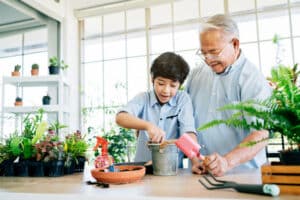 Collecting indoor plants is a fruitful hobby that brings your home to life. Even better, once you find the right greenery for your space, you’ll enjoy beautiful foliage and flowers the whole year round! Seniors Helping Seniors® in-home care services delights in watching our care receivers take on new interests and this pursuit is one that’s easy to begin and a whole lot of fun! Having spring houseplants can also
Collecting indoor plants is a fruitful hobby that brings your home to life. Even better, once you find the right greenery for your space, you’ll enjoy beautiful foliage and flowers the whole year round! Seniors Helping Seniors® in-home care services delights in watching our care receivers take on new interests and this pursuit is one that’s easy to begin and a whole lot of fun! Having spring houseplants can also 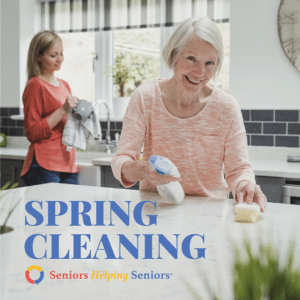 March welcomes the start of the spring season, bringing with it a host of positive aspects like longer days, perfect weather, and a renewed sense of life in the world. It also means it’s time to buckle down and do some serious spring cleaning! With the right attitude and tips – like the following Seniors Helping Seniors® suggestions – tidying up your home can be truly satisfying and leave you feeling refreshed!
March welcomes the start of the spring season, bringing with it a host of positive aspects like longer days, perfect weather, and a renewed sense of life in the world. It also means it’s time to buckle down and do some serious spring cleaning! With the right attitude and tips – like the following Seniors Helping Seniors® suggestions – tidying up your home can be truly satisfying and leave you feeling refreshed!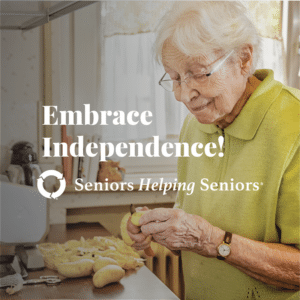
 Every
Every  With a wide variety of flavors to choose from, tea is not only tasty, it also offers an array of advantages for your mind and body. At Seniors Helping Seniors® in-home care services, we decided to brew up a pot of our favorite blend and take a look at why tea time brings perfect drink.
With a wide variety of flavors to choose from, tea is not only tasty, it also offers an array of advantages for your mind and body. At Seniors Helping Seniors® in-home care services, we decided to brew up a pot of our favorite blend and take a look at why tea time brings perfect drink. Most of us see the holidays as such a happy time of year. From childhood, we have associated December with Santa, gifts, family, and magical feelings. As adults, we view the holiday season through the eyes of our own children, reveling in their joy as they experience traditions anew. For many seniors, however, depression rears its ugly head with even more prominence at the holidays. How can you help your senior loved one maintain positive holiday mental health?
Most of us see the holidays as such a happy time of year. From childhood, we have associated December with Santa, gifts, family, and magical feelings. As adults, we view the holiday season through the eyes of our own children, reveling in their joy as they experience traditions anew. For many seniors, however, depression rears its ugly head with even more prominence at the holidays. How can you help your senior loved one maintain positive holiday mental health? We love this season with pumpkins, apples, cooler weather, and gorgeous leaves. The fact that things are a little closer to “normal” this year only adds to our enthusiasm. We could never list all the activities we love about this time of year, but we definitely have favorites. From hayrides to Halloween costumes, you can always find something to do. But what about your senior loved one? Let’s explore some fall fun geared just for them, making them feel active and involved. In fact, if you find yourself hanging out with both your
We love this season with pumpkins, apples, cooler weather, and gorgeous leaves. The fact that things are a little closer to “normal” this year only adds to our enthusiasm. We could never list all the activities we love about this time of year, but we definitely have favorites. From hayrides to Halloween costumes, you can always find something to do. But what about your senior loved one? Let’s explore some fall fun geared just for them, making them feel active and involved. In fact, if you find yourself hanging out with both your 
 Children spend a lot of time talking about what they want to be when they grow up. They pepper their conversations with dreams of becoming firefighters, police officers, ballerinas, singers, and whatever pops into their brains at the moment. When they grow up, do they stop dreaming? Did you? In addition to other benefits, working in retirement may give you the chance to dream again.
Children spend a lot of time talking about what they want to be when they grow up. They pepper their conversations with dreams of becoming firefighters, police officers, ballerinas, singers, and whatever pops into their brains at the moment. When they grow up, do they stop dreaming? Did you? In addition to other benefits, working in retirement may give you the chance to dream again.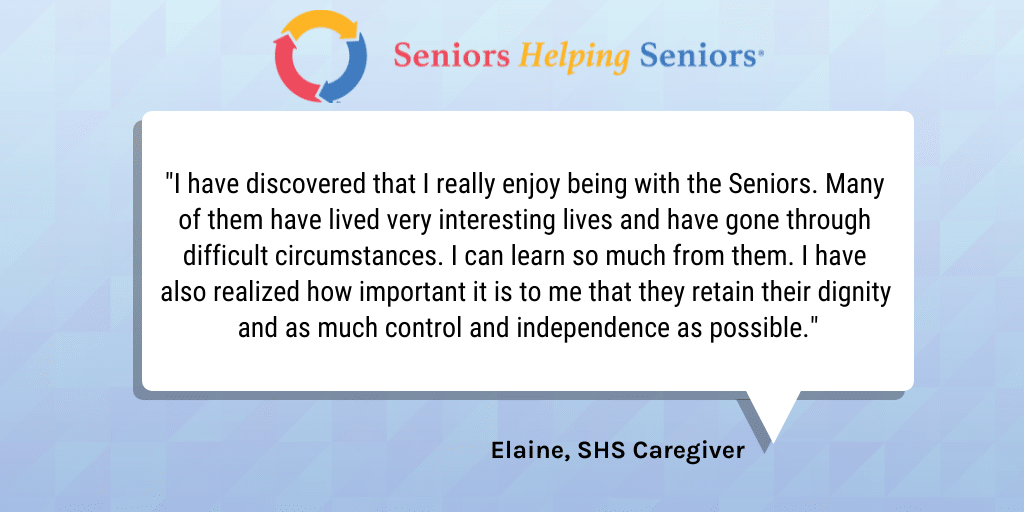


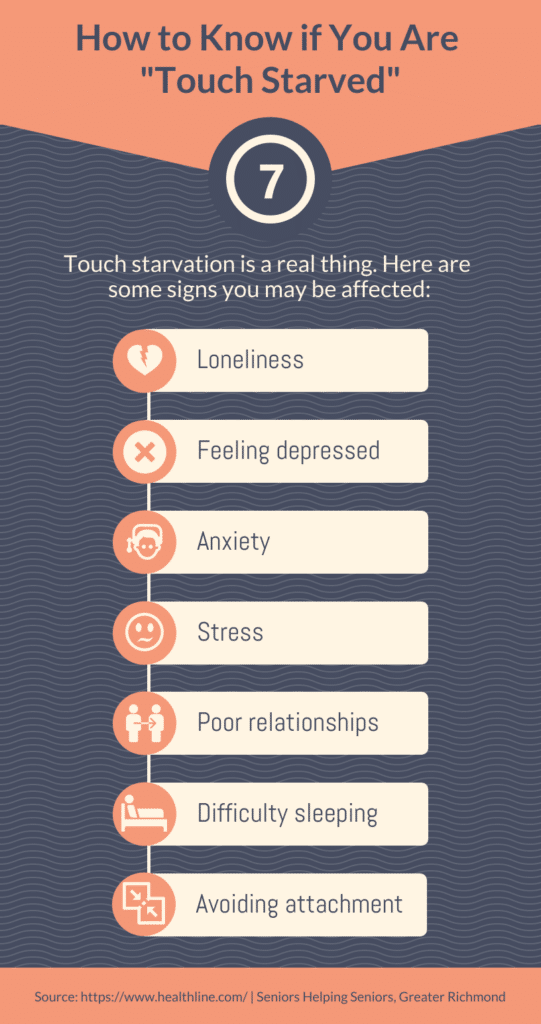
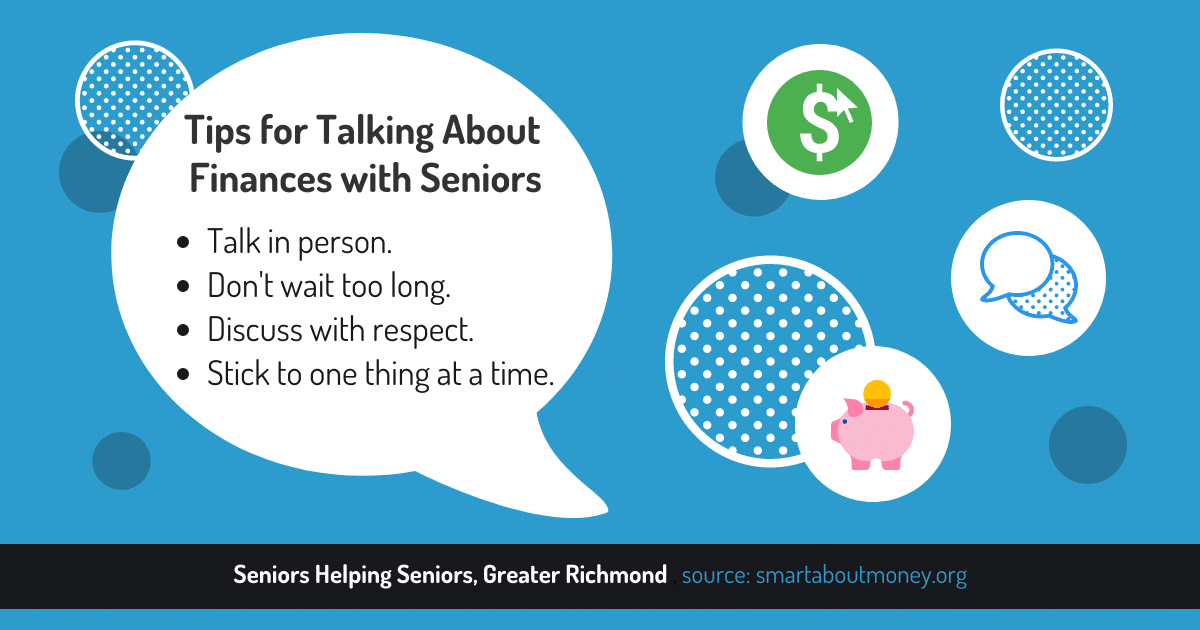
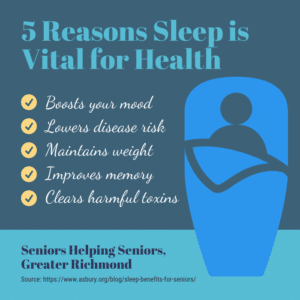

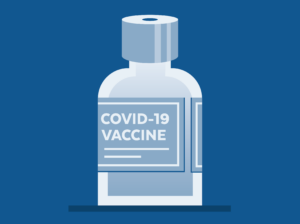

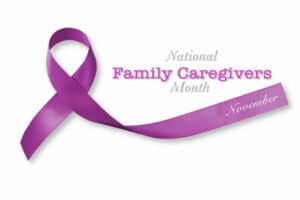

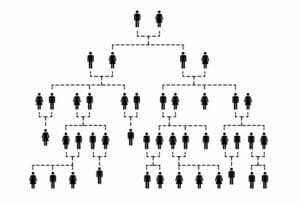 Where do I come from? That question weighs on a lot of people’s minds, especially those who have little family to ask. Researching genealogy has become more popular in recent years, but why? For one thing, the science is more readily available to the average person. Additionally, more and more people have realized how much they can learn and gain from knowing more about their backgrounds. Let’s dive in and learn more.
Where do I come from? That question weighs on a lot of people’s minds, especially those who have little family to ask. Researching genealogy has become more popular in recent years, but why? For one thing, the science is more readily available to the average person. Additionally, more and more people have realized how much they can learn and gain from knowing more about their backgrounds. Let’s dive in and learn more.

 2020 hasn’t exactly gone the way we envisioned. (Get it? 2020 vision? Couldn’t resist.) So much has happened, particularly with the Coronavirus, that we didn’t expect. Unfortunately, this has meant missing out on other things. While most people can relate to missing graduation, weddings, and other celebrations, not getting to have the summer Olympics this year has been widely felt. Since we don’t get to tune in live, let’s take a look at and relive some past Olympic moments.
2020 hasn’t exactly gone the way we envisioned. (Get it? 2020 vision? Couldn’t resist.) So much has happened, particularly with the Coronavirus, that we didn’t expect. Unfortunately, this has meant missing out on other things. While most people can relate to missing graduation, weddings, and other celebrations, not getting to have the summer Olympics this year has been widely felt. Since we don’t get to tune in live, let’s take a look at and relive some past Olympic moments. How many times, as young adults, did we joke with a friend about hanging out until we were old? I know I’ve done that with a friend… if her husband and mine both go before we do, we’ll move in together and conquer the world ourselves. All joking aside, more and more seniors have chosen this path as the way to go. It’s called Aging in Cohousing, and the classic TV show “The Golden Girls” showed exactly how it can work.
How many times, as young adults, did we joke with a friend about hanging out until we were old? I know I’ve done that with a friend… if her husband and mine both go before we do, we’ll move in together and conquer the world ourselves. All joking aside, more and more seniors have chosen this path as the way to go. It’s called Aging in Cohousing, and the classic TV show “The Golden Girls” showed exactly how it can work. It feels like this whole shelter-in-place thing has lasted forever, doesn’t it? Students have now been out of school for the equivalent of an entire summer break. Here in central Virginia, summer has not actually even started! In fact, kids will have spent a full 6 months between their last day of in person school and the first day in the fall. And that assumes that they will even go back in a “normal” way this September. While most seniors don’t have to deal with students in school, the whole situation presents its own set of challenges for older members of our community. So far, we’ve talked about
It feels like this whole shelter-in-place thing has lasted forever, doesn’t it? Students have now been out of school for the equivalent of an entire summer break. Here in central Virginia, summer has not actually even started! In fact, kids will have spent a full 6 months between their last day of in person school and the first day in the fall. And that assumes that they will even go back in a “normal” way this September. While most seniors don’t have to deal with students in school, the whole situation presents its own set of challenges for older members of our community. So far, we’ve talked about 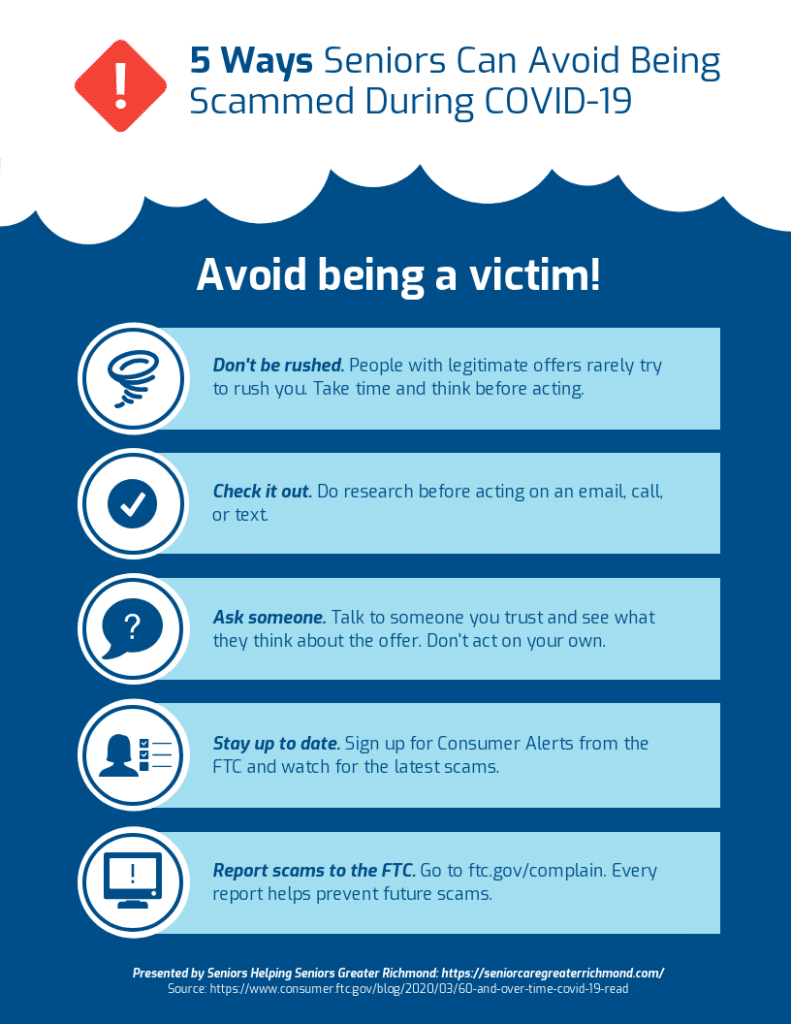
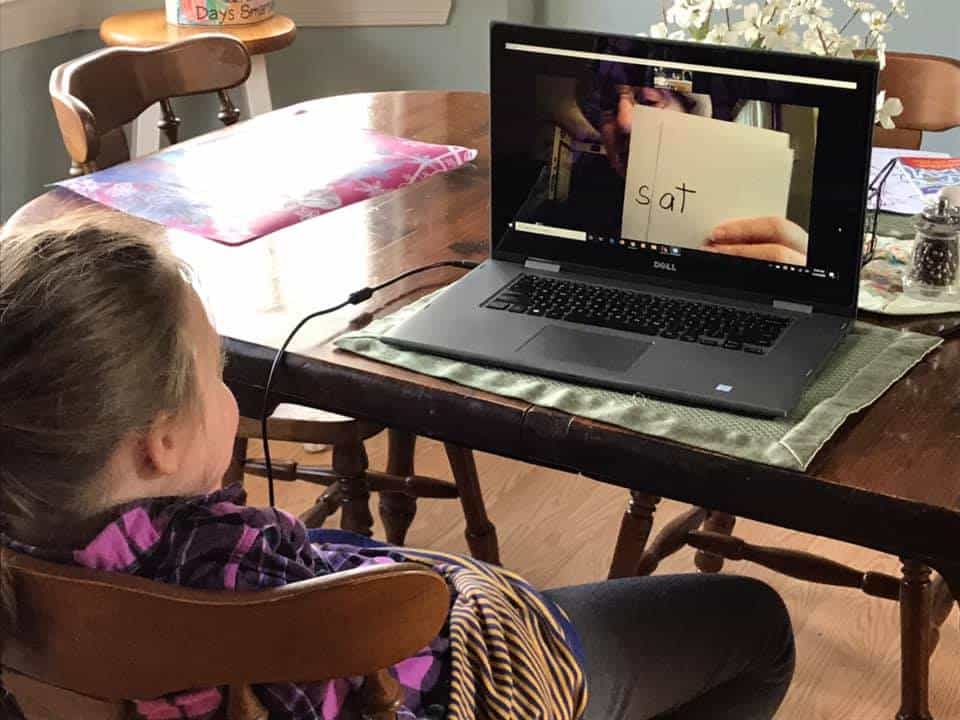
 What do you think of when someone talks about being present? You may picture a box with a bow on it, but that’s not the kind of present we mean. This kind of present means being in the moment… really experiencing your surroundings and taking it all in. With the invention of cell phones and tablets, really being present becomes more difficult. Whether it’s with social media, email, games, news, or a host of other distractions, we constantly pay more attention to our devices than to our surroundings. Regardless of age, most people experience this distraction at some point. What if it’s your senior who can’t stop looking at electronics? Senior cell phone addiction is a growing problem, and we’re here to help.
What do you think of when someone talks about being present? You may picture a box with a bow on it, but that’s not the kind of present we mean. This kind of present means being in the moment… really experiencing your surroundings and taking it all in. With the invention of cell phones and tablets, really being present becomes more difficult. Whether it’s with social media, email, games, news, or a host of other distractions, we constantly pay more attention to our devices than to our surroundings. Regardless of age, most people experience this distraction at some point. What if it’s your senior who can’t stop looking at electronics? Senior cell phone addiction is a growing problem, and we’re here to help. As we mark the beginning of 2020, we thought it would be fun to compare the first 20 years of the 20th century to the first 20 years of this one. Enjoy as we take a look!
As we mark the beginning of 2020, we thought it would be fun to compare the first 20 years of the 20th century to the first 20 years of this one. Enjoy as we take a look! During retirement, it’s easily to become isolated. You don’t have the structure of a job and as many reasons for leaving the house. In fact, a recent University of North Carolina study found that 43 percent of seniors surveyed felt lonely. That is not good for your health. When you feel lonely and isolated, you are more likely to become depressed and experience chronic health problems. That can lead to the inability to age in place and having to live in a nursing home.
During retirement, it’s easily to become isolated. You don’t have the structure of a job and as many reasons for leaving the house. In fact, a recent University of North Carolina study found that 43 percent of seniors surveyed felt lonely. That is not good for your health. When you feel lonely and isolated, you are more likely to become depressed and experience chronic health problems. That can lead to the inability to age in place and having to live in a nursing home. The senior population in the United States is growing. Today, there are more than 46 million older adults age 65 and older in the U.S. By 2050, that number is expected to grow to almost 90 million. At the same time, the percentage of seniors who are volunteering is declining. Around 24 percent of people 65 years of age and older volunteered in 2011, but now around 23 percent volunteer.
The senior population in the United States is growing. Today, there are more than 46 million older adults age 65 and older in the U.S. By 2050, that number is expected to grow to almost 90 million. At the same time, the percentage of seniors who are volunteering is declining. Around 24 percent of people 65 years of age and older volunteered in 2011, but now around 23 percent volunteer. As a senior, you have the time to travel and explore the world. You can visit new places and see amazing things. One overlooked area to explore is the country’s National Parks system. The National Park system was created in 1916 and is a crown jewel. Today, the system has 419 parks covering more than 85 million acres. A national park exists in all 50 states. Some are large parks like Yellowstone or Yosemite, but others are smaller battlefields and historic sites.
As a senior, you have the time to travel and explore the world. You can visit new places and see amazing things. One overlooked area to explore is the country’s National Parks system. The National Park system was created in 1916 and is a crown jewel. Today, the system has 419 parks covering more than 85 million acres. A national park exists in all 50 states. Some are large parks like Yellowstone or Yosemite, but others are smaller battlefields and historic sites.
 Disasters are reality in this day and age. According to recent data, the number of significant disasters, where at least 10 people were killed, has been rising steadily since the 1970s. For example, Hurricane Katrina in 2005 caused an estimated $200 billion in damage and is considered the costliest natural disaster in U.S. history.
Disasters are reality in this day and age. According to recent data, the number of significant disasters, where at least 10 people were killed, has been rising steadily since the 1970s. For example, Hurricane Katrina in 2005 caused an estimated $200 billion in damage and is considered the costliest natural disaster in U.S. history. Whether it’s you or a loved one, the aging process is daunting. Where do you turn for help? What legal resources are there? What if someone tries to take advantage of you or a loved one? The good news is that you are not alone. There are people out there who can help. Here at Seniors Helping Seniors Greater Richmond, we will try to steer you in the right direction and help you find the answers you need. We also have a
Whether it’s you or a loved one, the aging process is daunting. Where do you turn for help? What legal resources are there? What if someone tries to take advantage of you or a loved one? The good news is that you are not alone. There are people out there who can help. Here at Seniors Helping Seniors Greater Richmond, we will try to steer you in the right direction and help you find the answers you need. We also have a 
 Stay Tuned
Stay Tuned Tom and his wife were in good health and doing well until a stroke changed everything for them. With a loss in Tom’s speech and mobility and no family in the area, his wife faced the task of caring for him and managing their household on her own. Since their son lived in the Richmond area, they moved to Chesterfield to have the support and companionship of nearby family in May 2017. Tom and his wife enjoy a community with other seniors and love what the area has to offer.
Tom and his wife were in good health and doing well until a stroke changed everything for them. With a loss in Tom’s speech and mobility and no family in the area, his wife faced the task of caring for him and managing their household on her own. Since their son lived in the Richmond area, they moved to Chesterfield to have the support and companionship of nearby family in May 2017. Tom and his wife enjoy a community with other seniors and love what the area has to offer.
 Two and a half years ago, Elaine Todd knew that the Chesterfield area would be where she retired so she could be closer to her daughter, son-in-law, and grandchildren. A pleasant change from the small community where she lived before, she loves the variety of activities available here. She does wish, however, that there were more options for affordable housing in well maintained communities for seniors.
Two and a half years ago, Elaine Todd knew that the Chesterfield area would be where she retired so she could be closer to her daughter, son-in-law, and grandchildren. A pleasant change from the small community where she lived before, she loves the variety of activities available here. She does wish, however, that there were more options for affordable housing in well maintained communities for seniors. About Michael
About Michael Sandra Okleasky moved to Chesterfield 27 years ago to escape the cold of New England. With her son in the Police Academy here, it seemed like a natural choice. She loves the nature and beauty in the part of the county where she lives but would prefer to see less traffic and new development in the county.
Sandra Okleasky moved to Chesterfield 27 years ago to escape the cold of New England. With her son in the Police Academy here, it seemed like a natural choice. She loves the nature and beauty in the part of the county where she lives but would prefer to see less traffic and new development in the county.